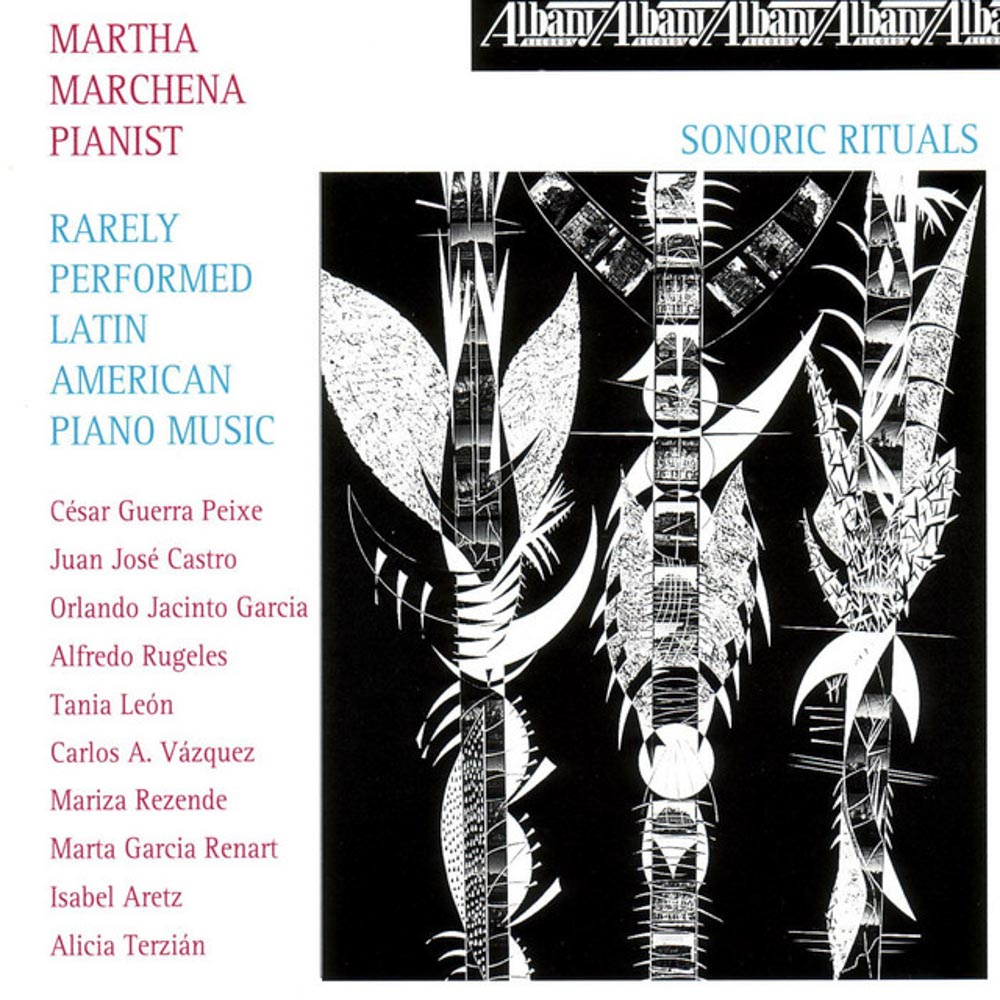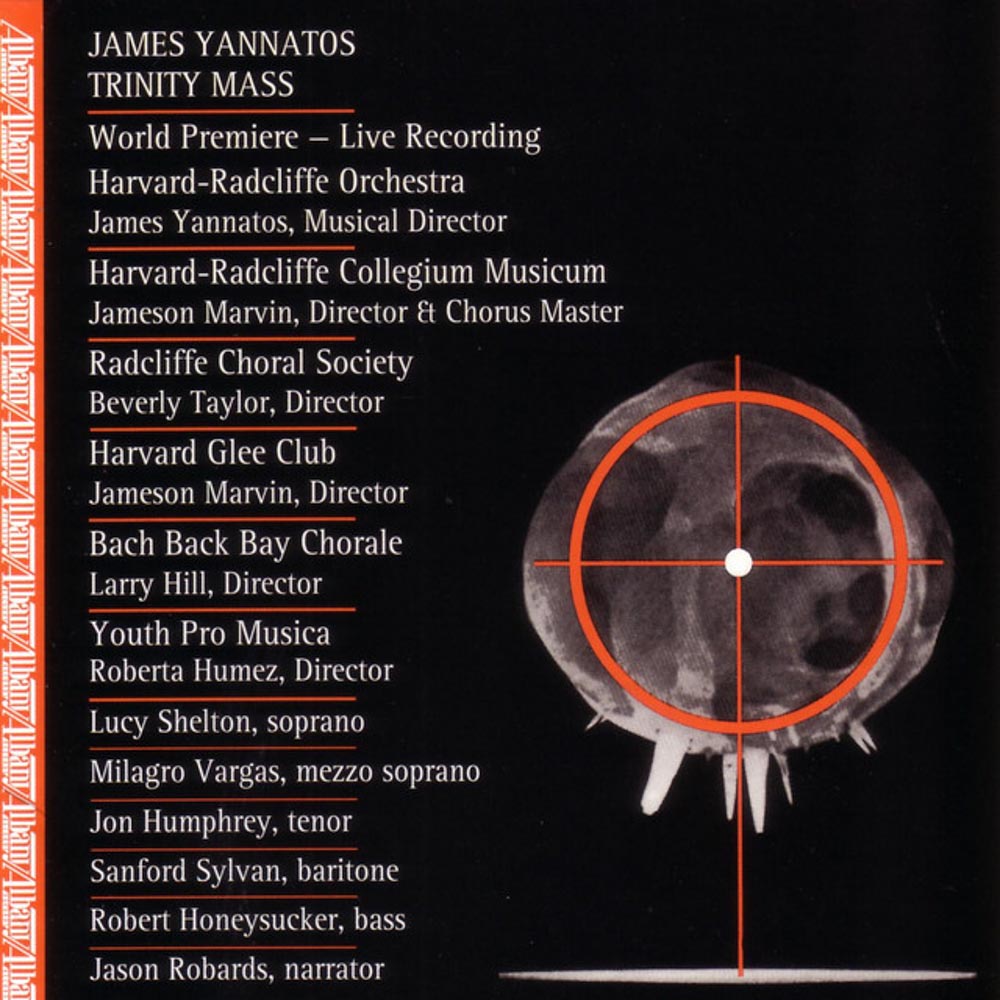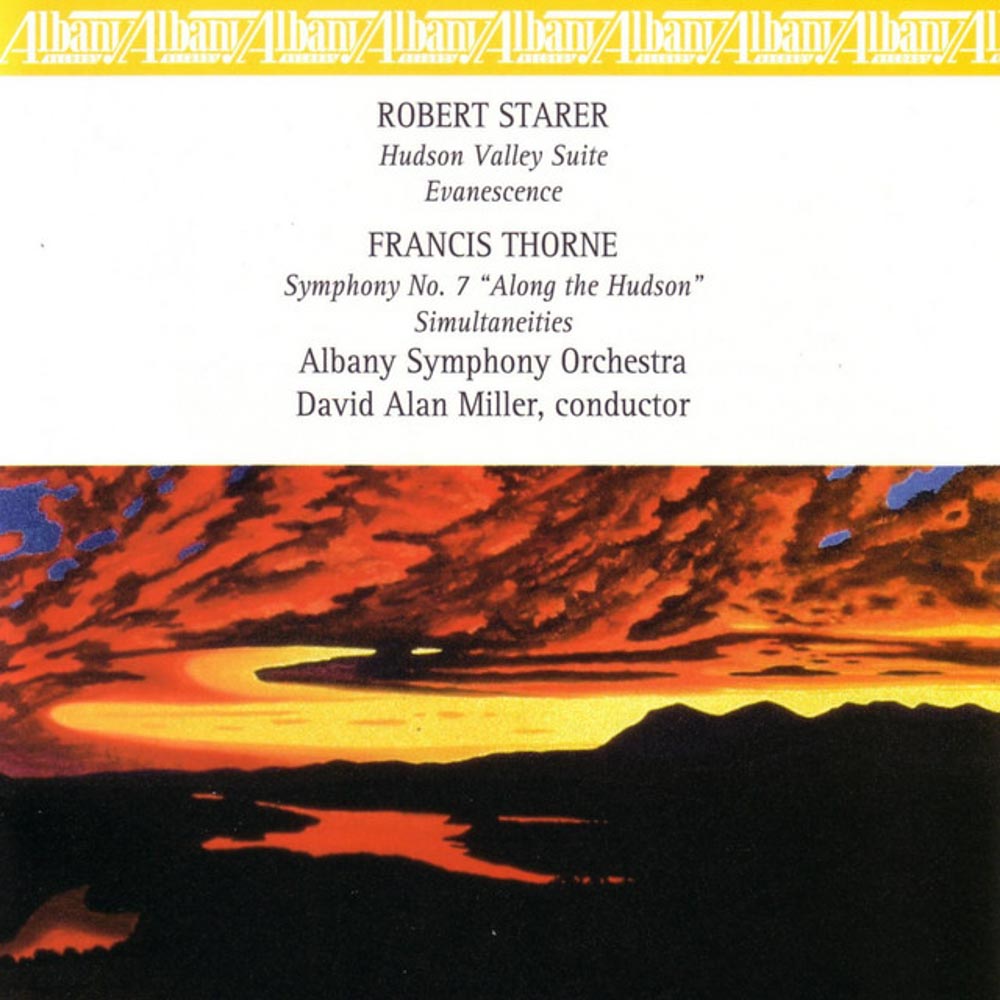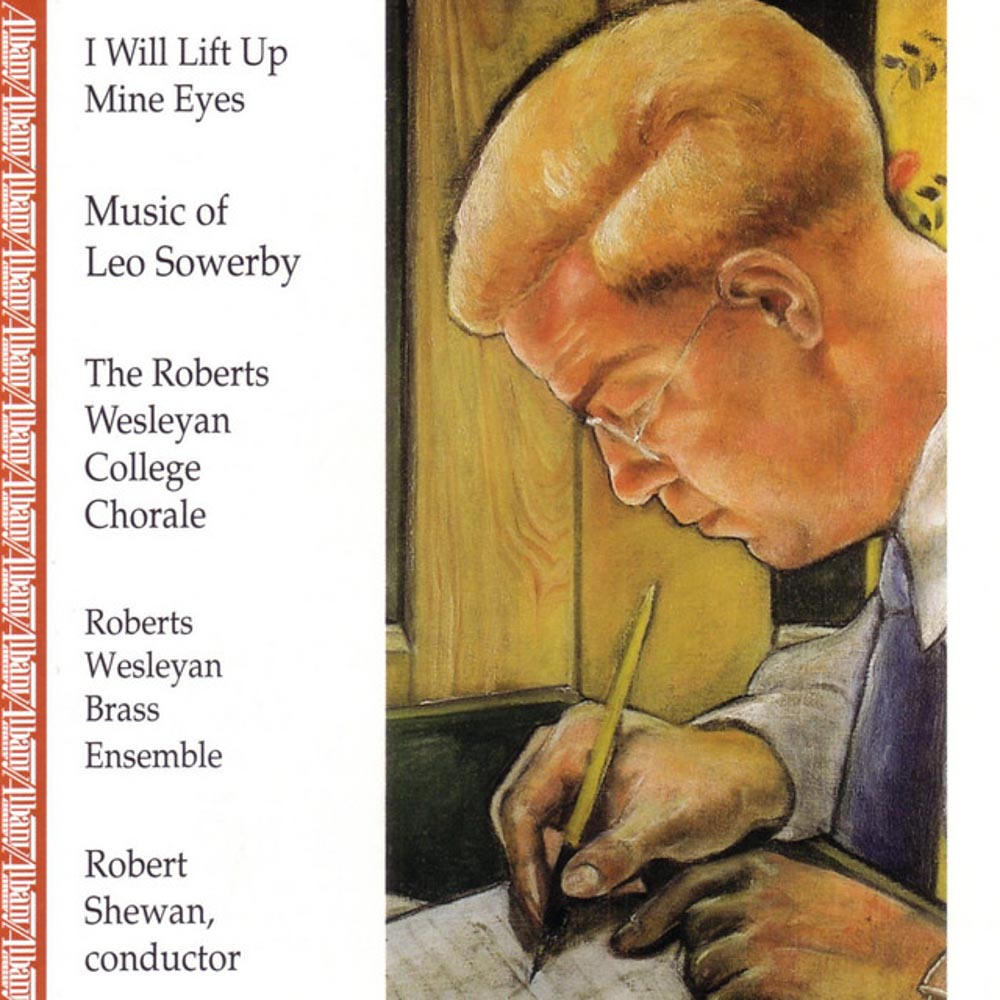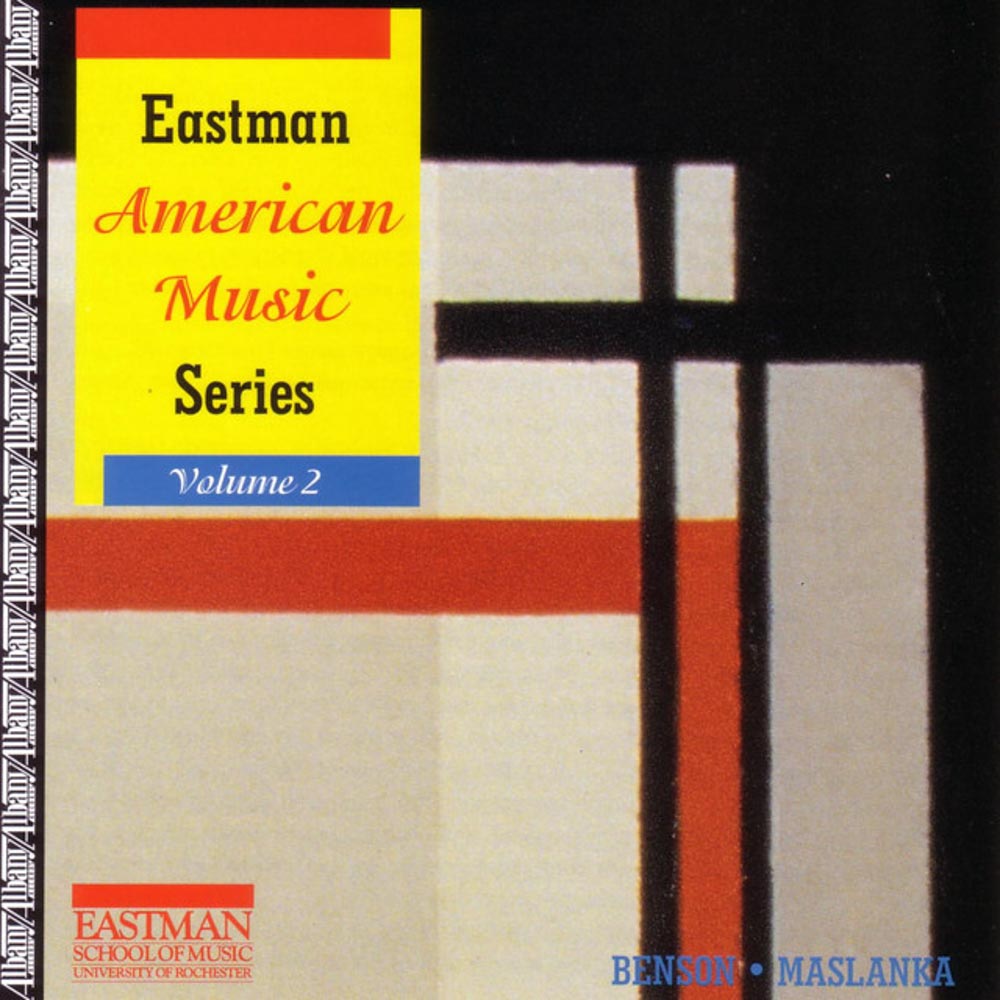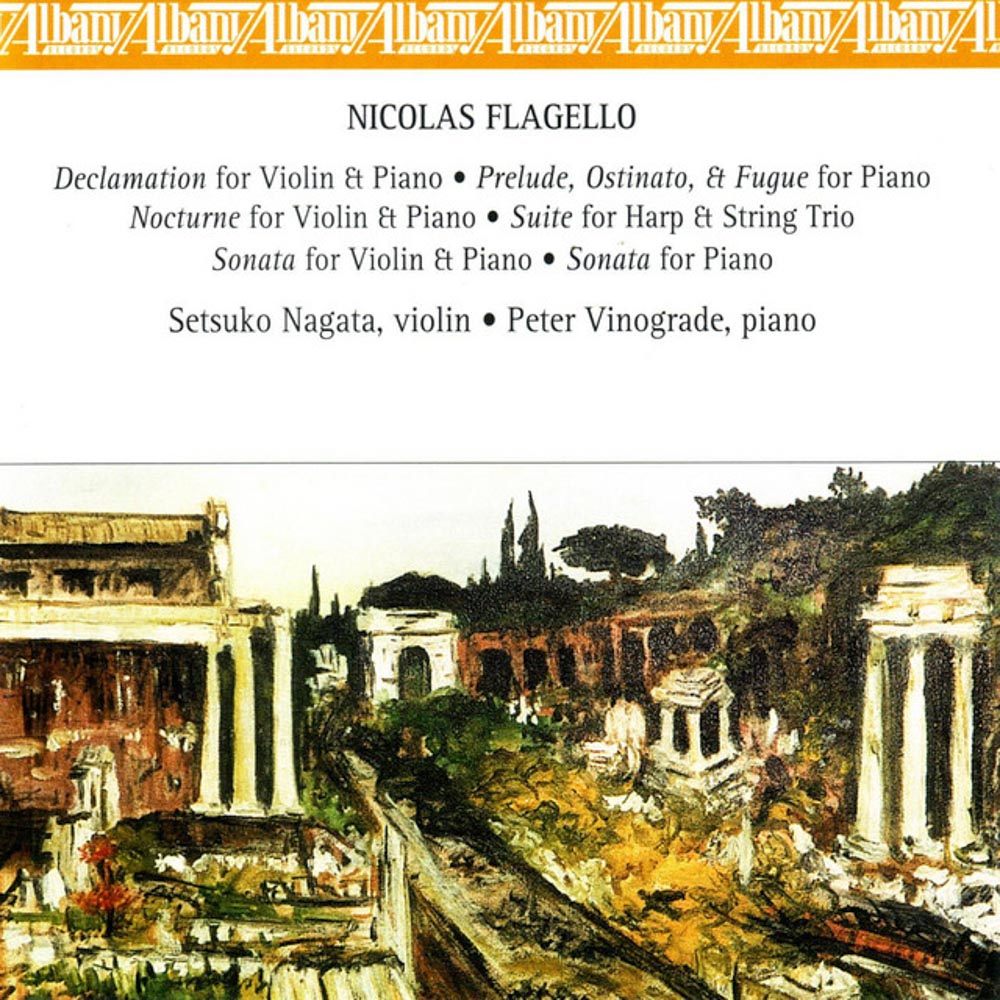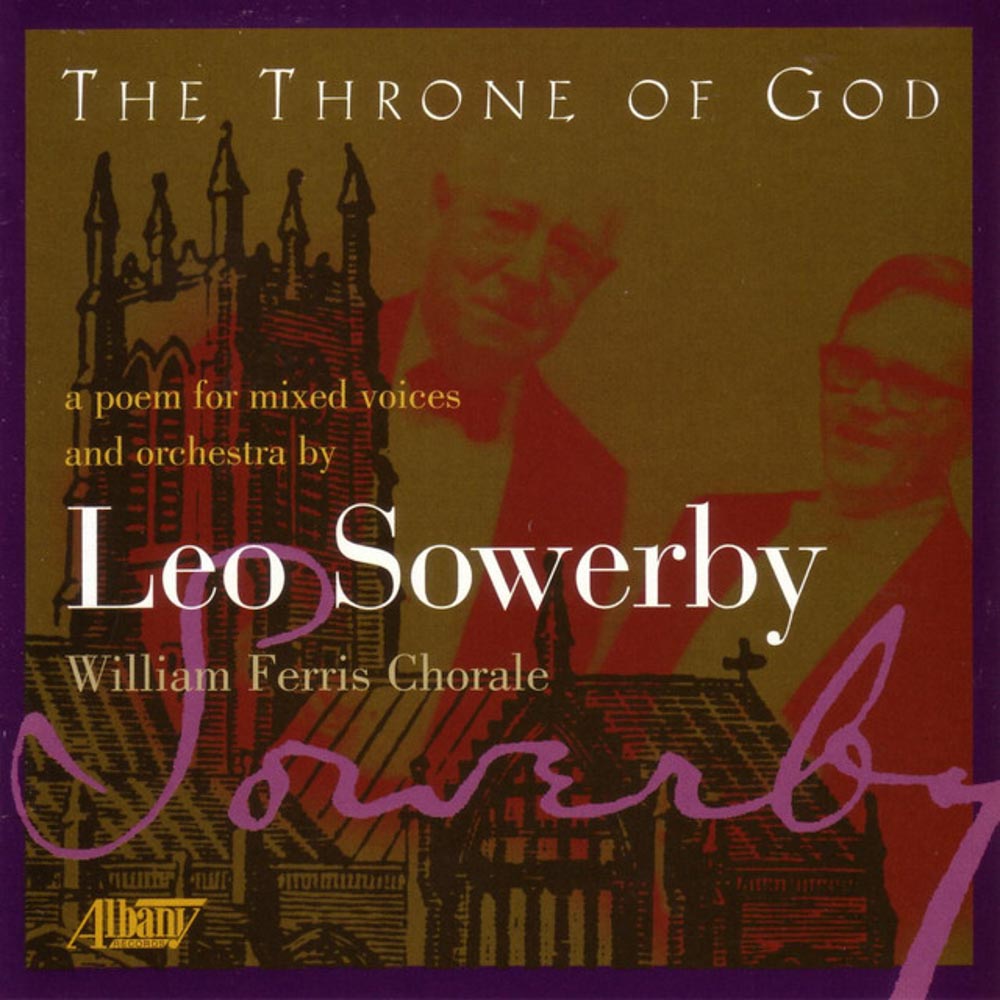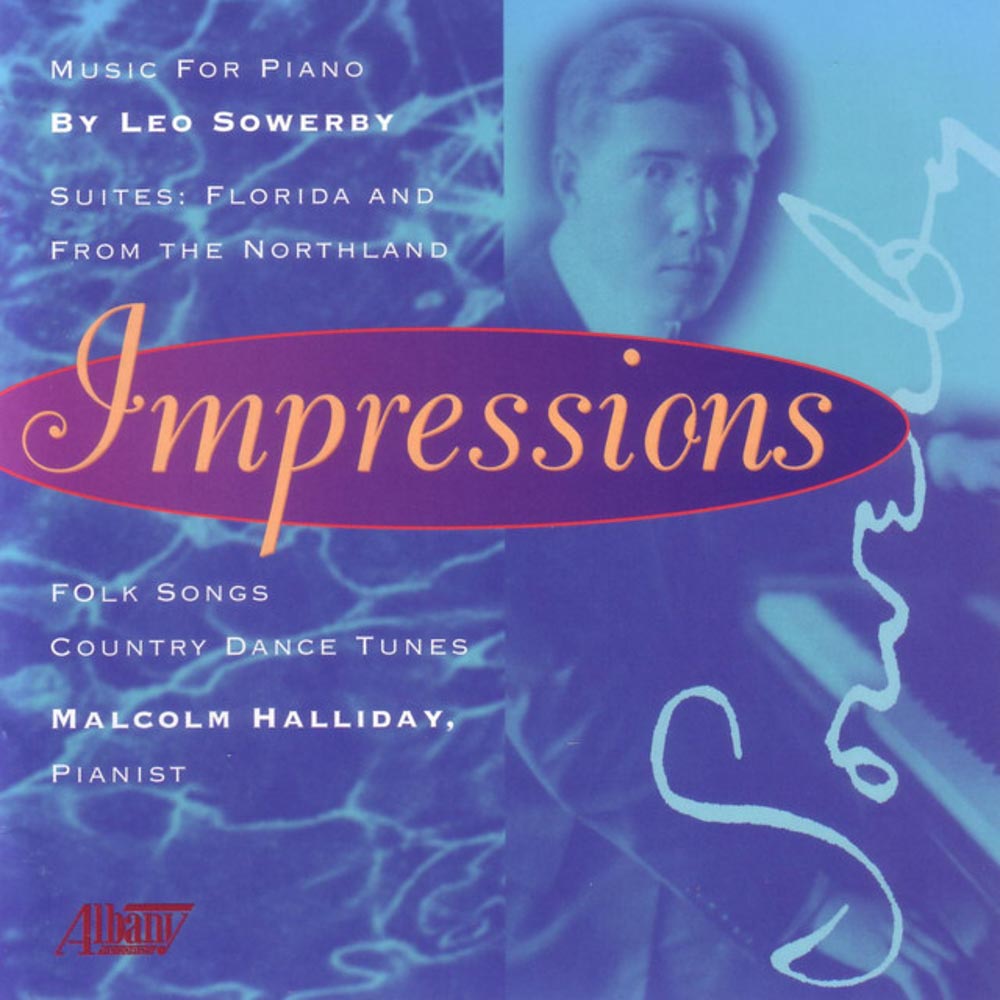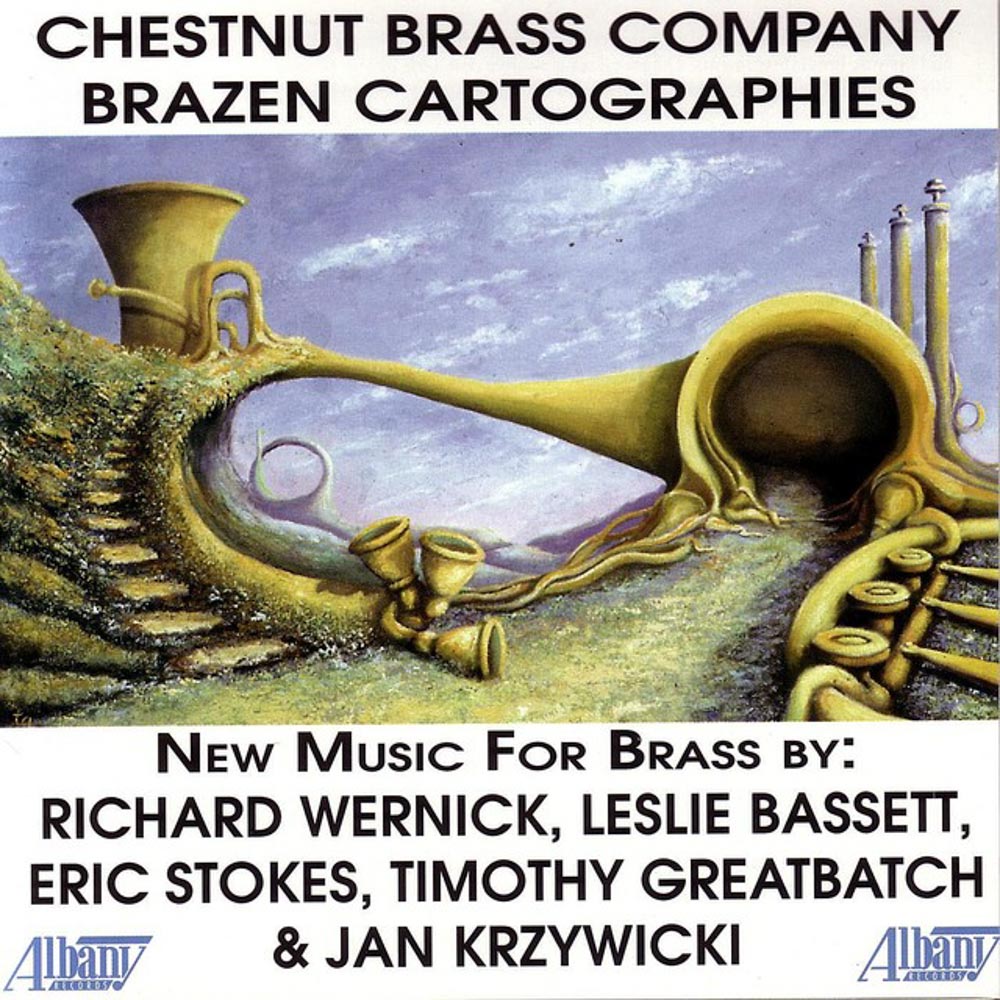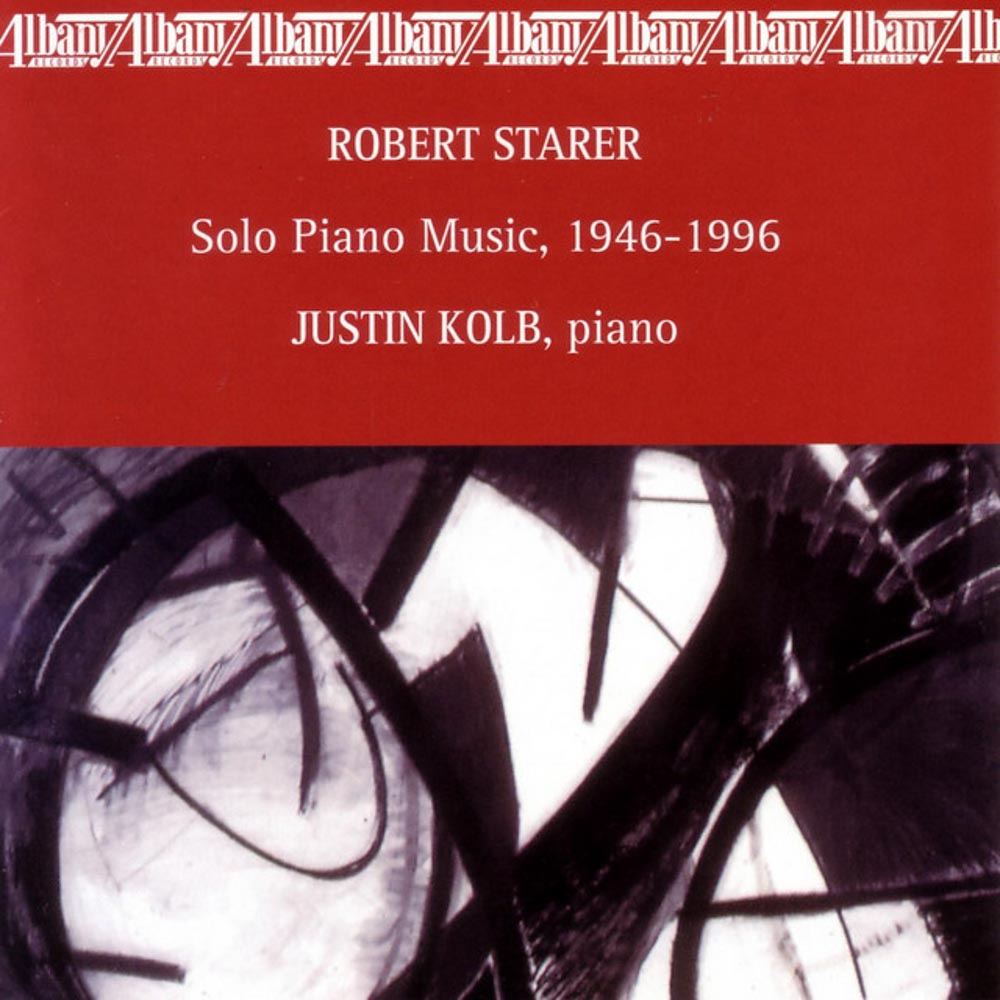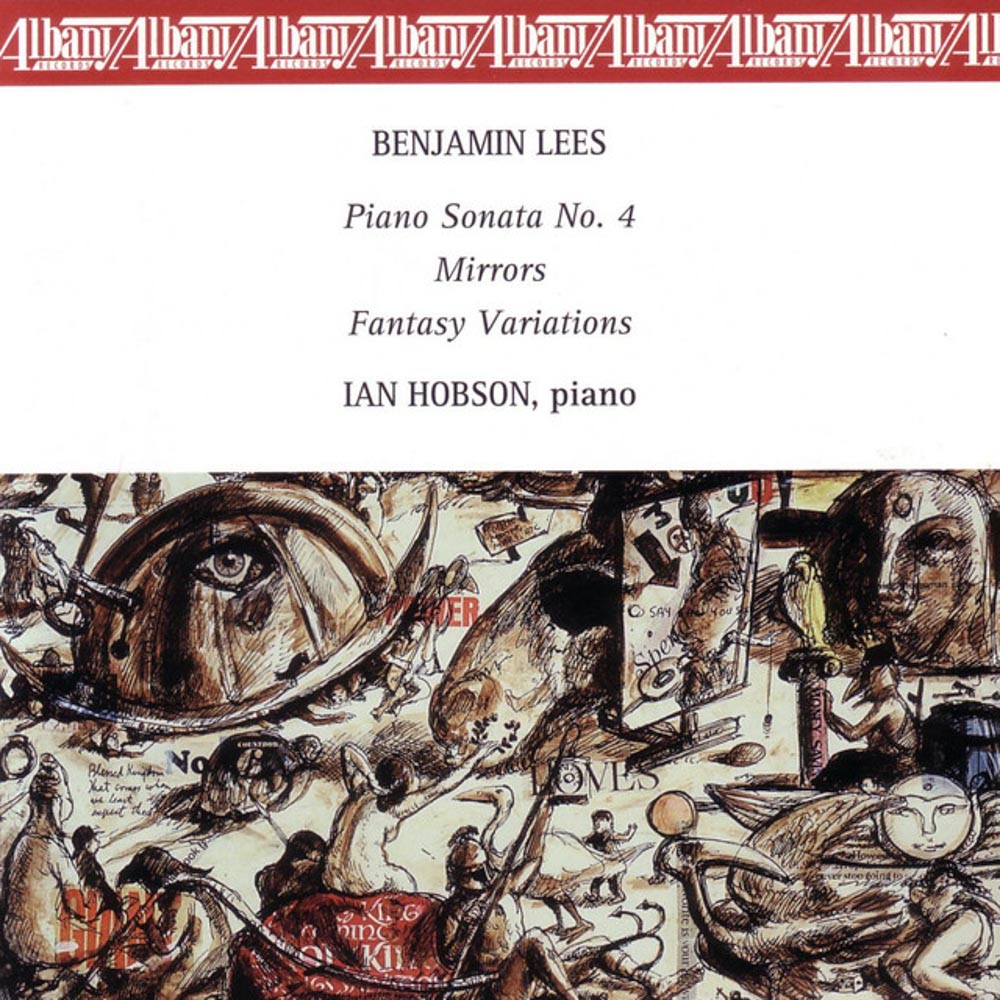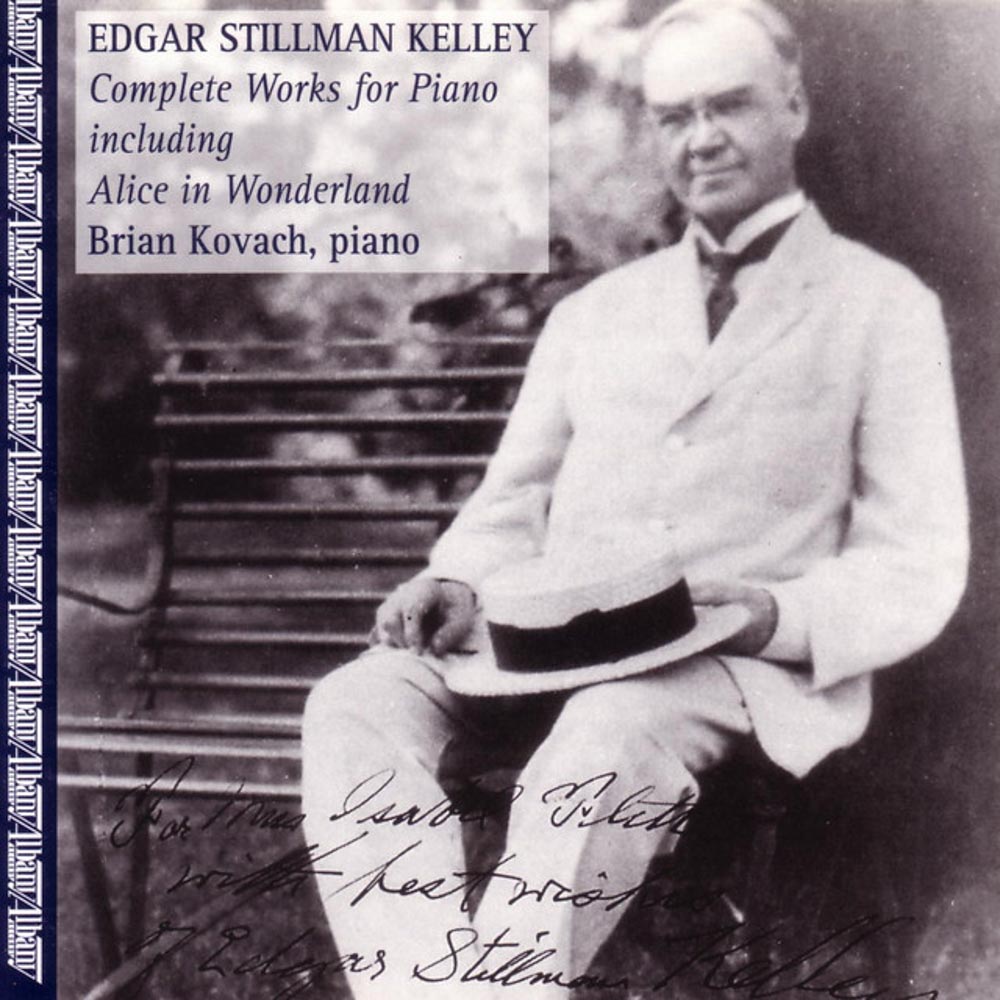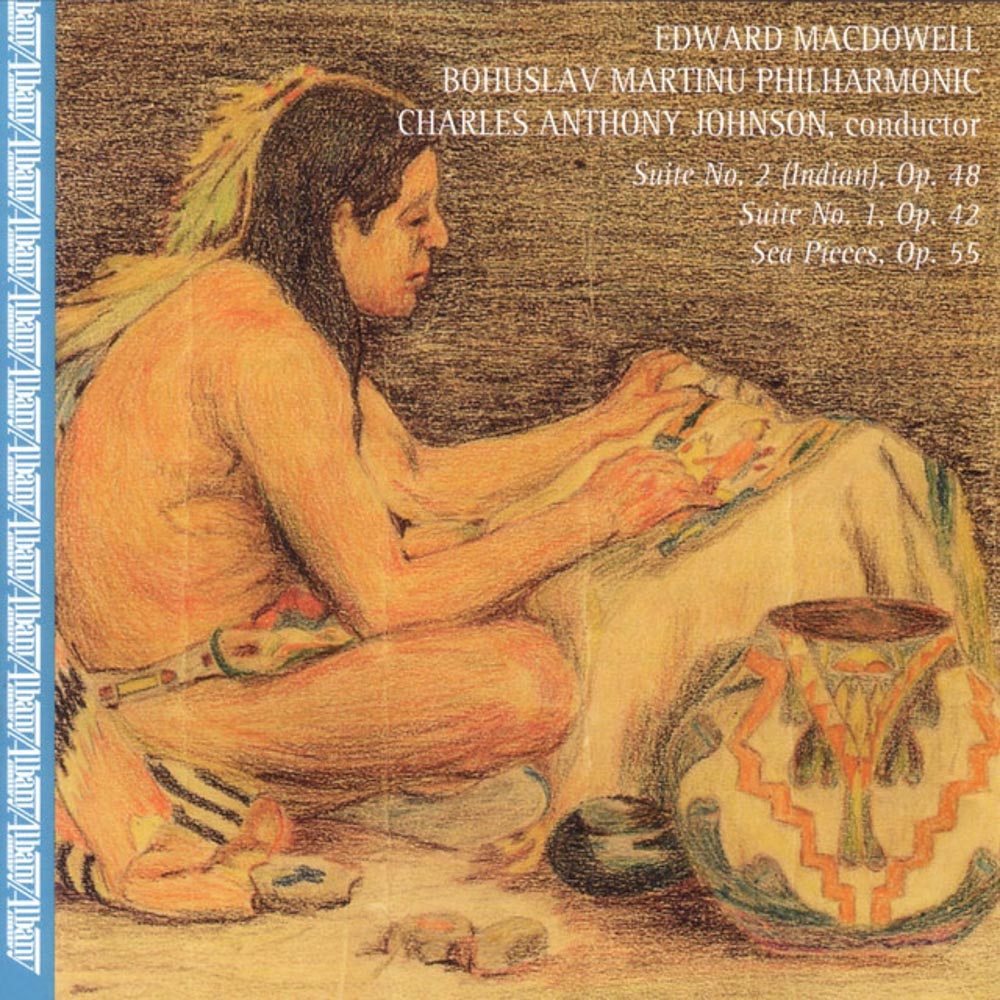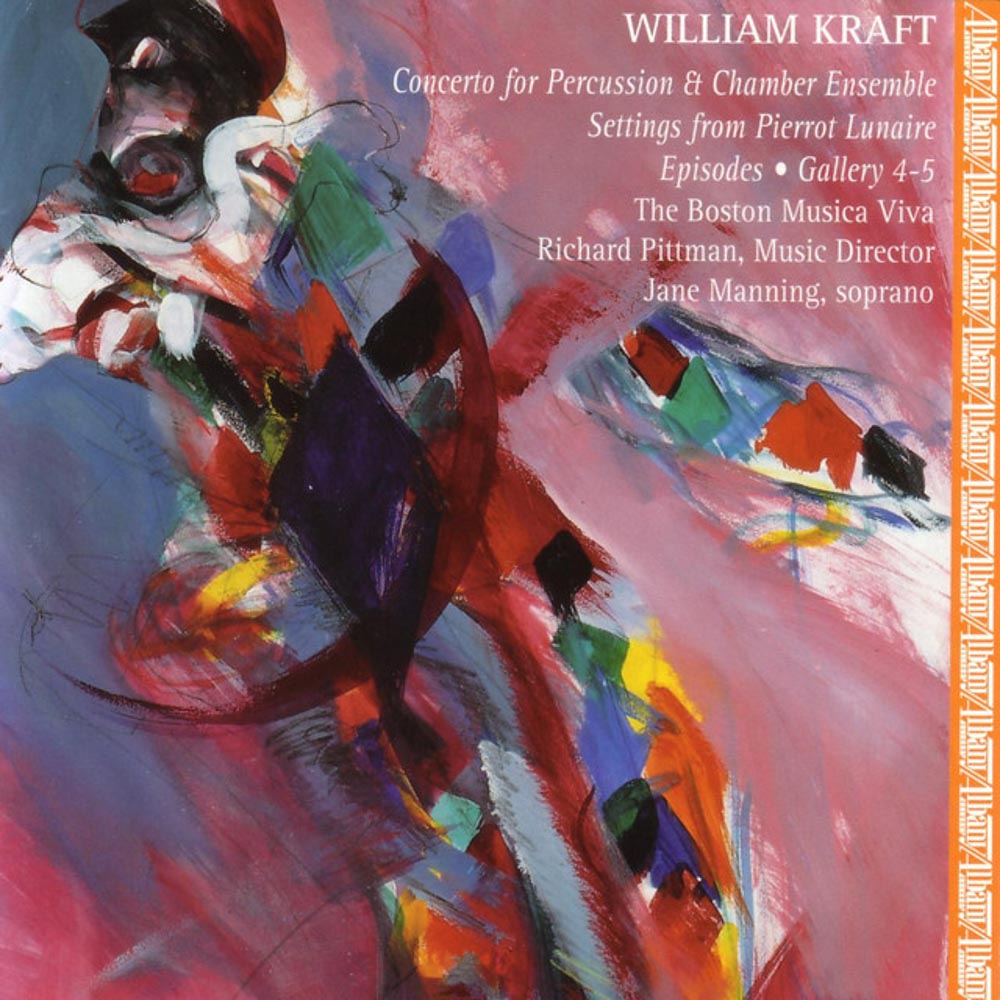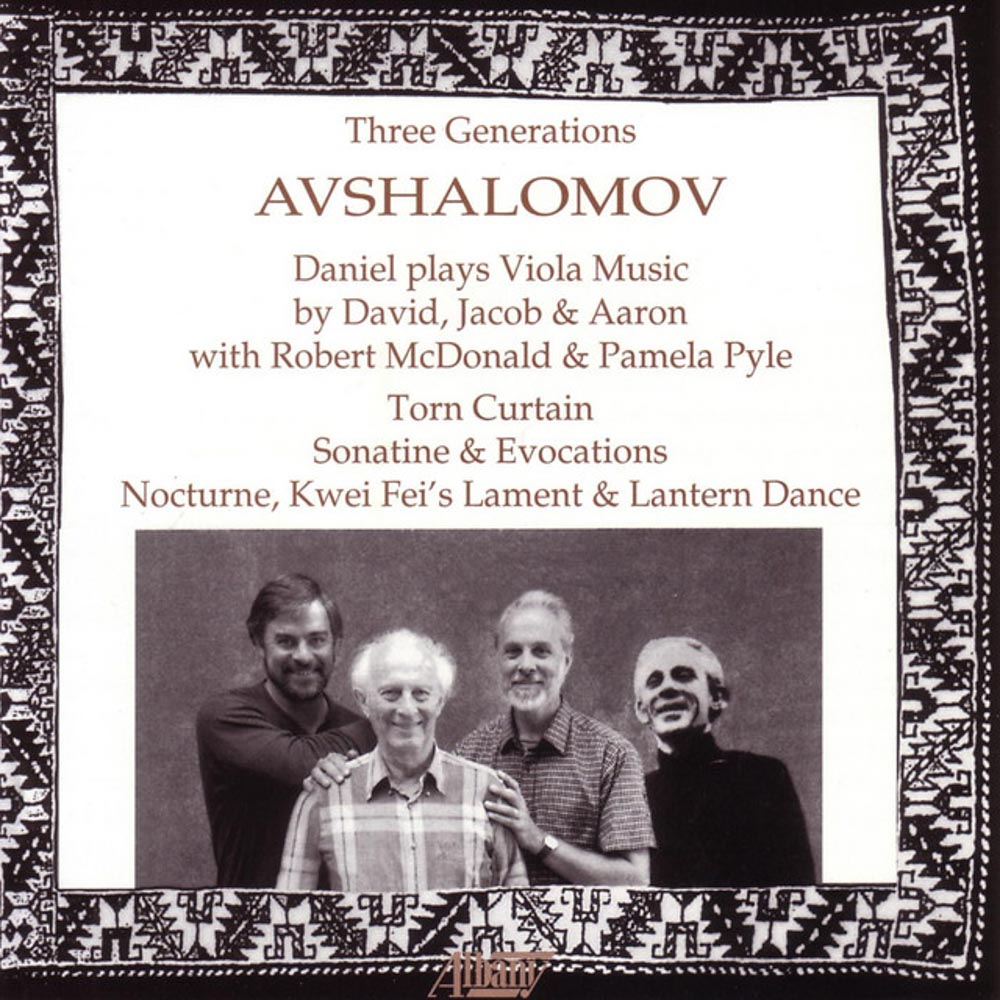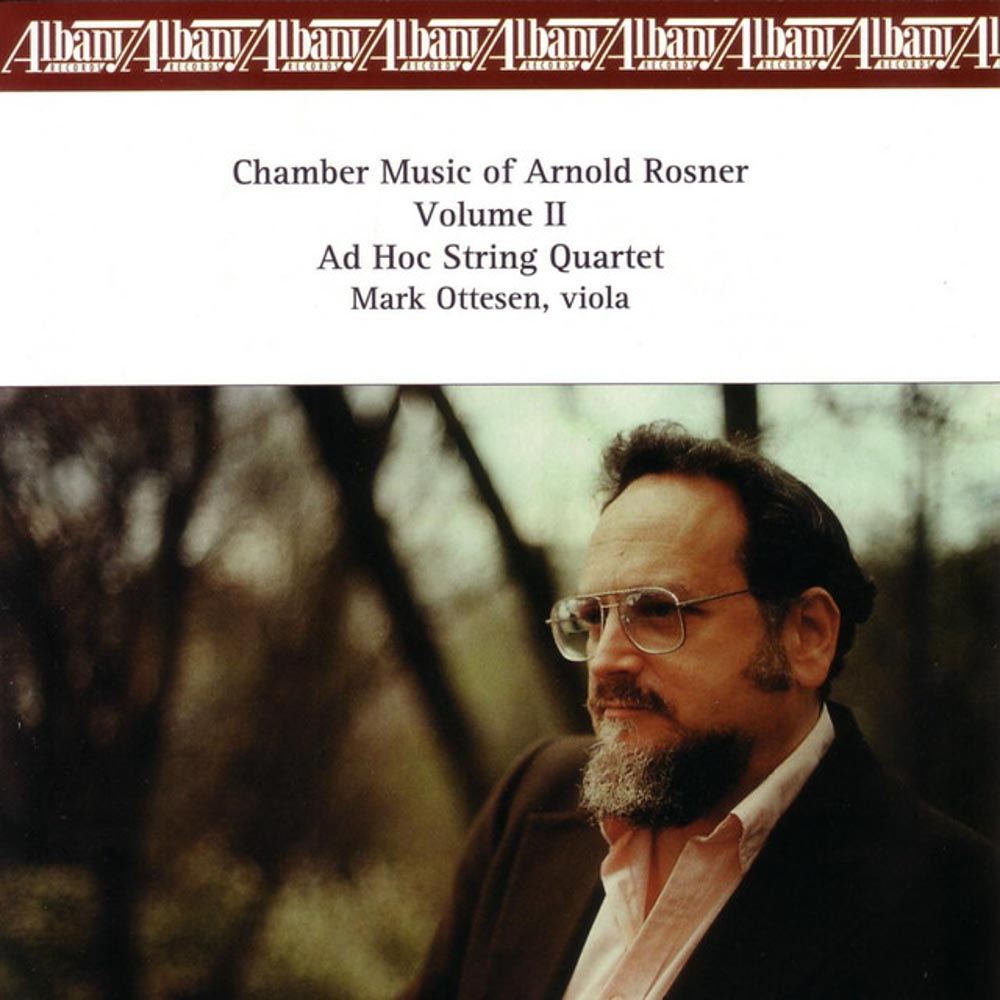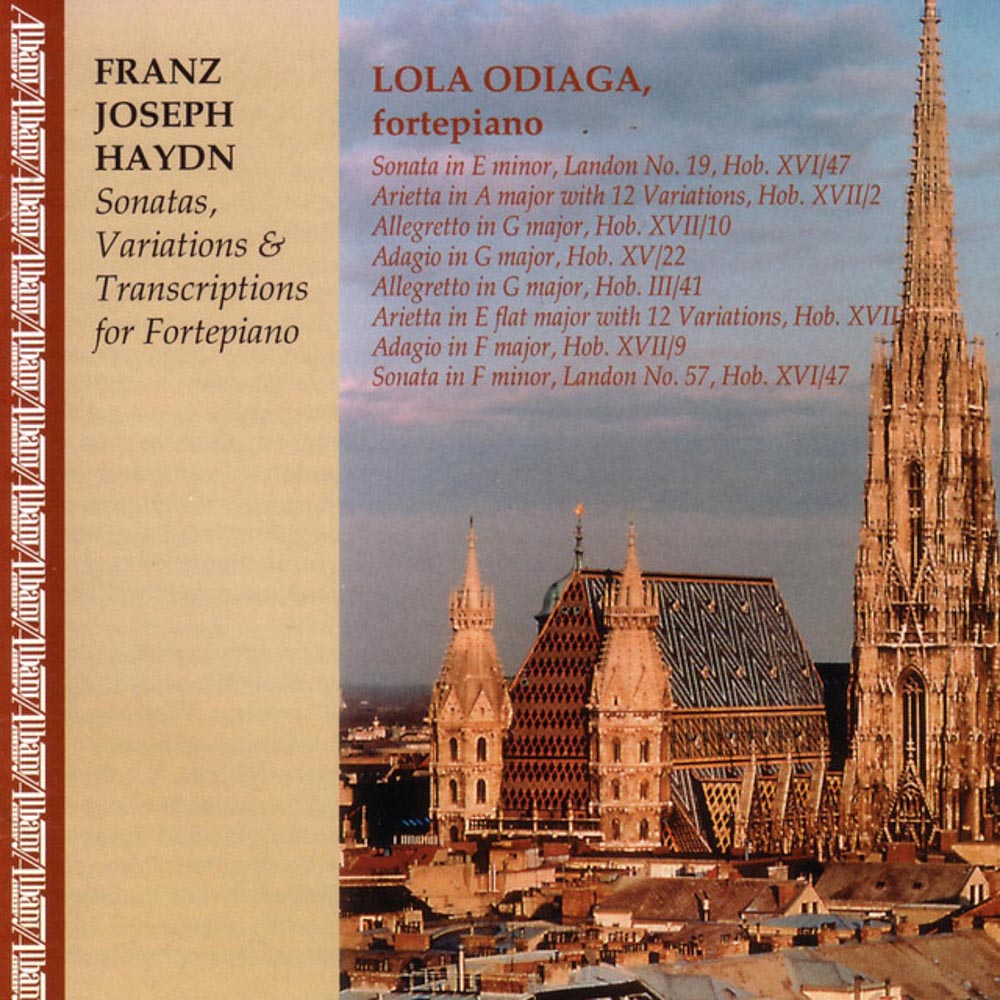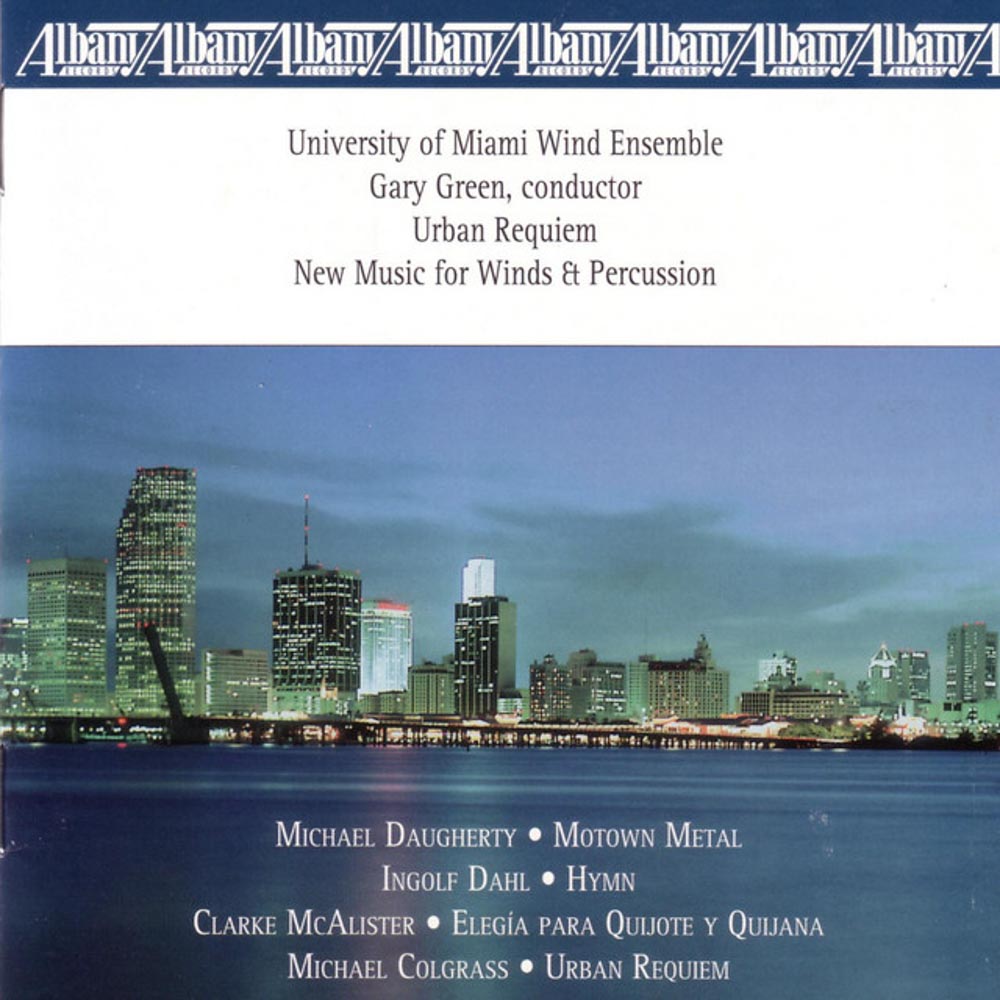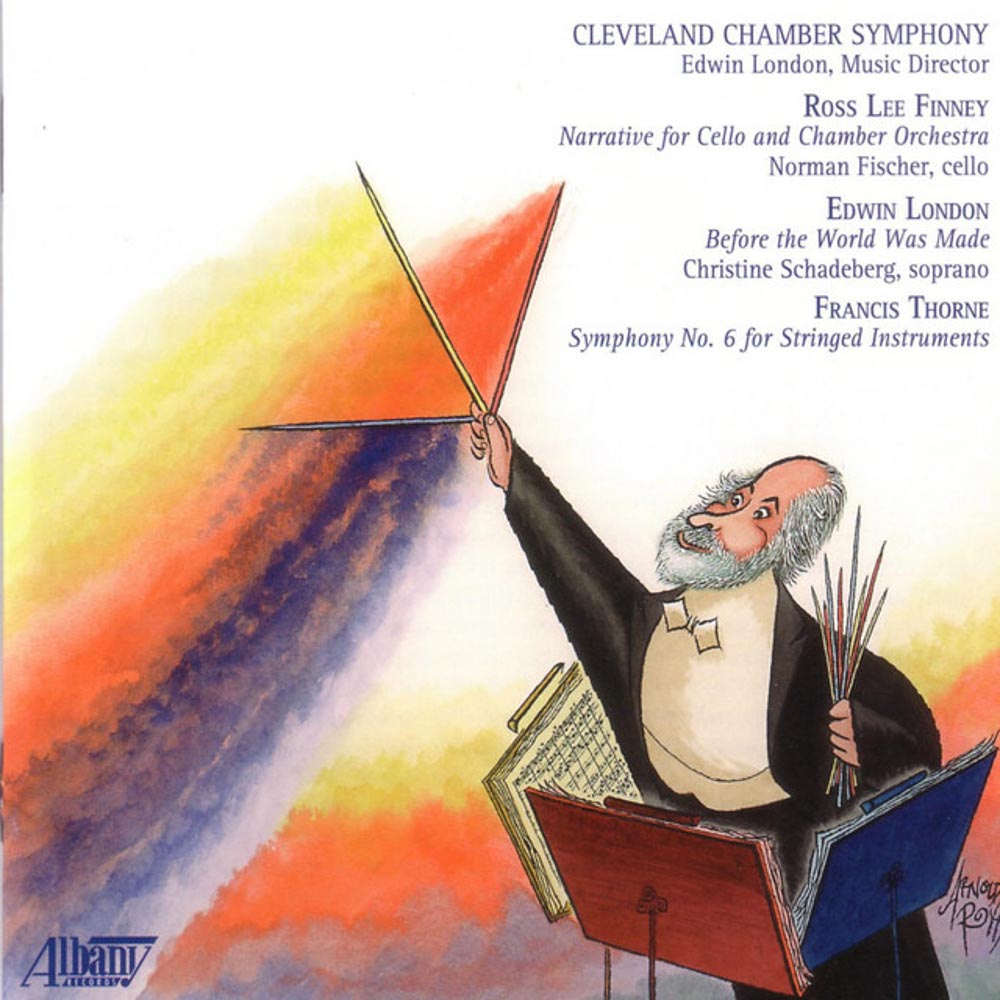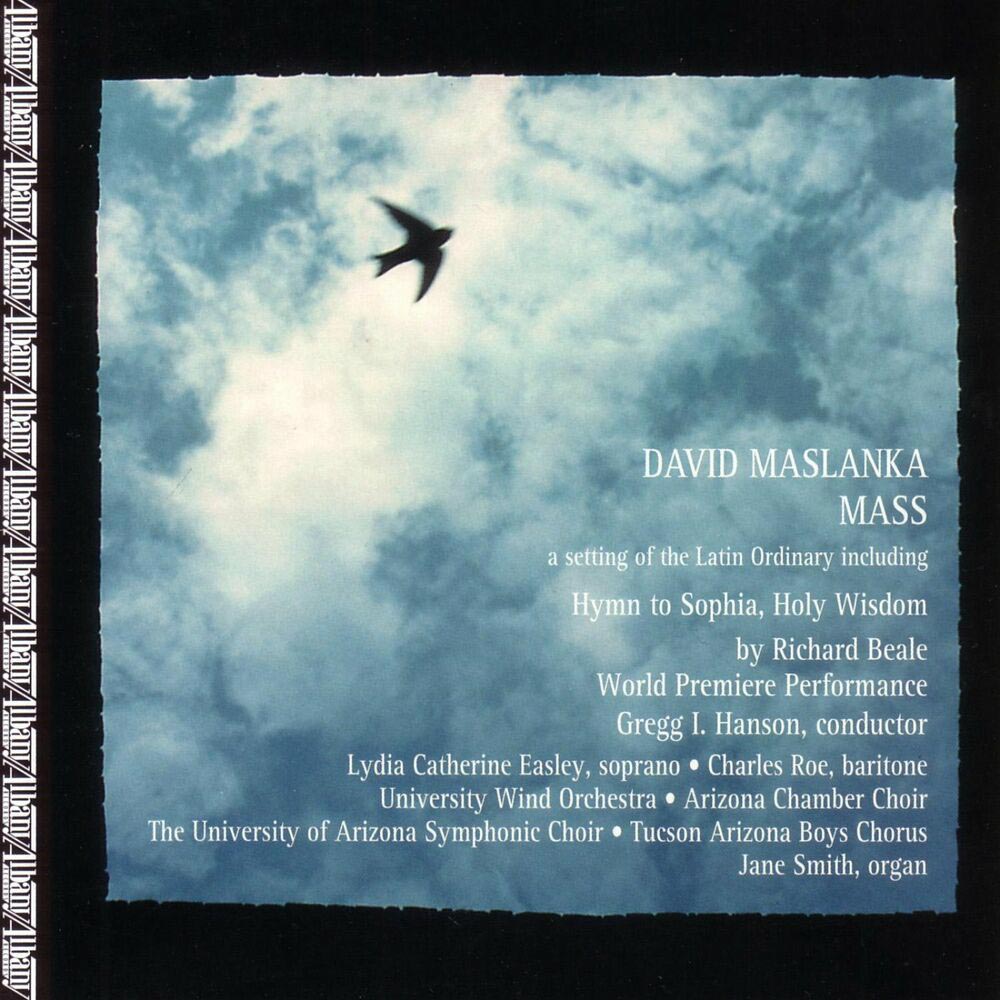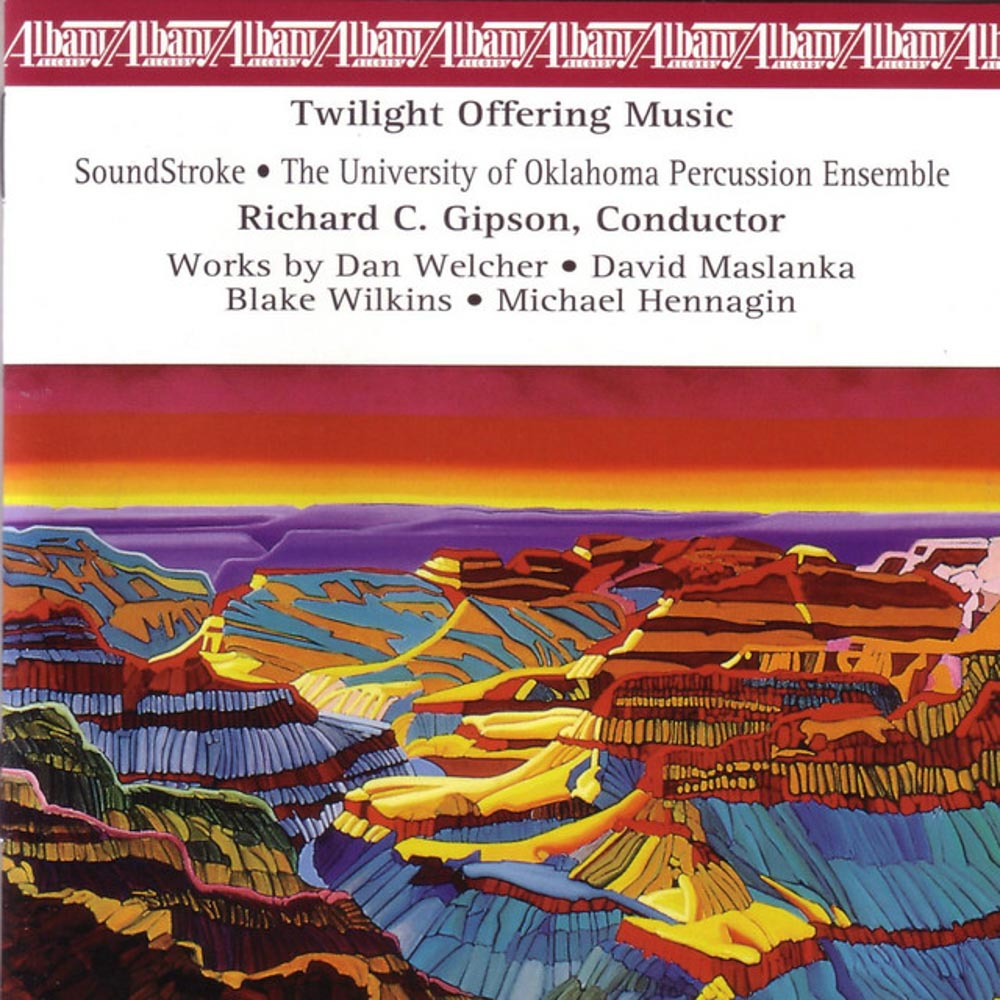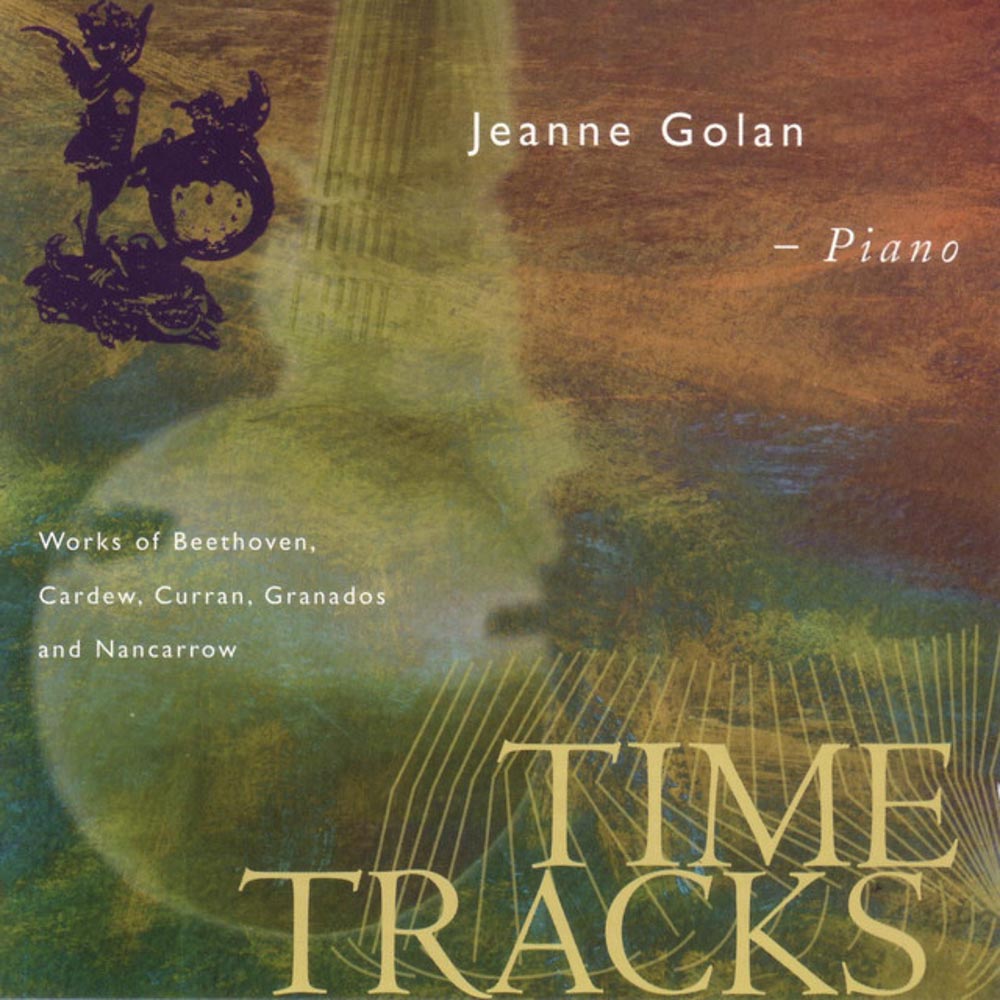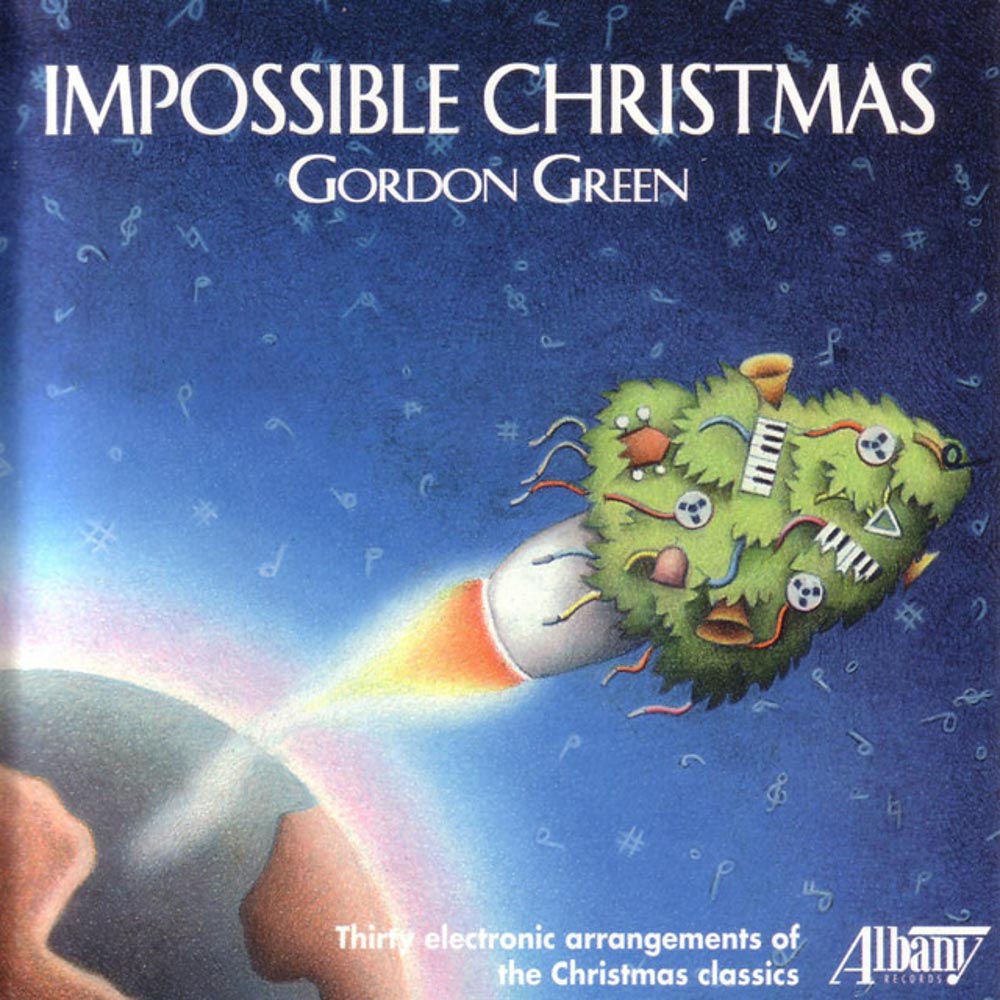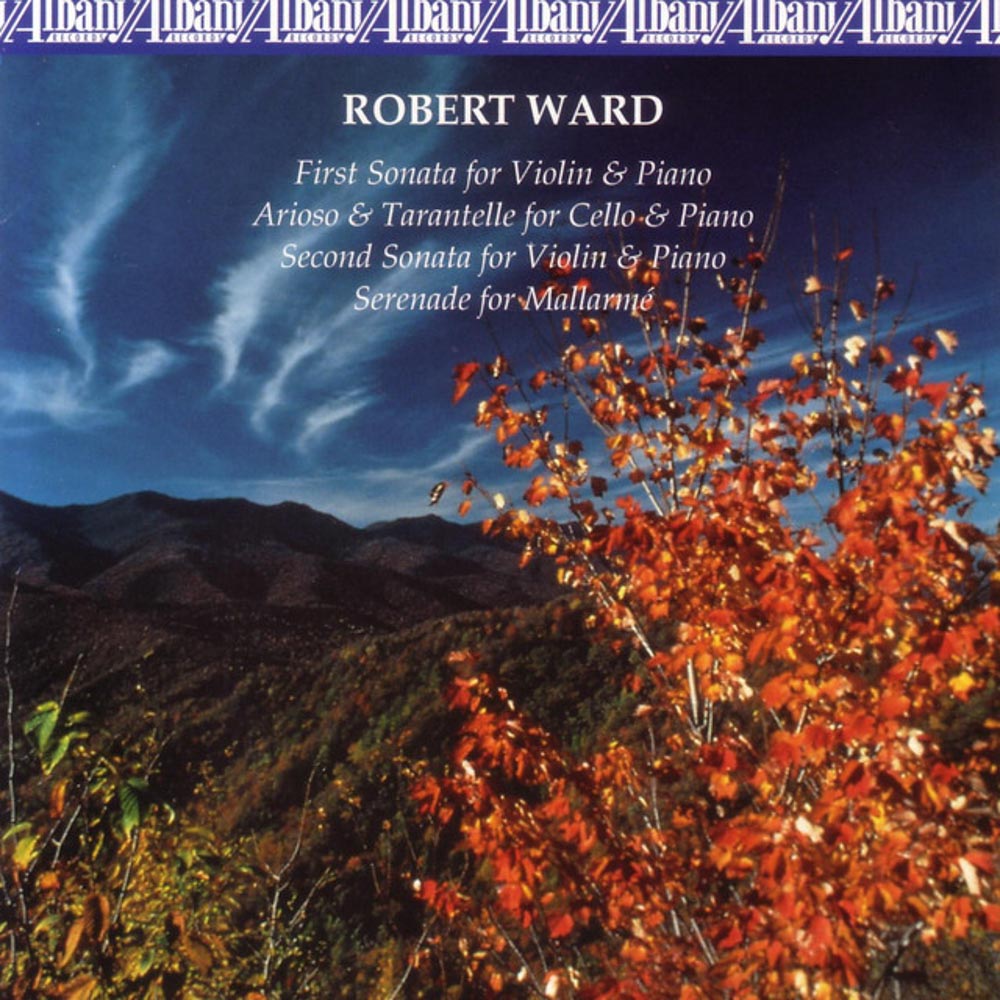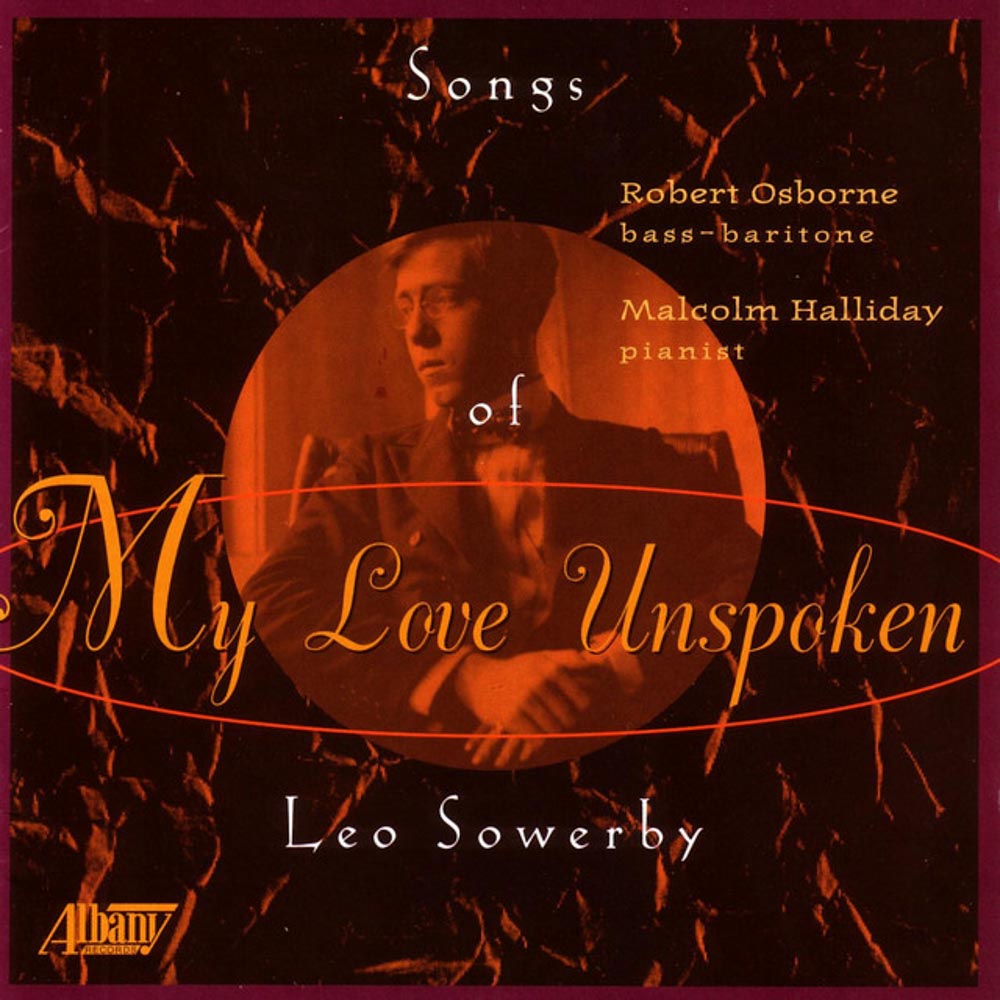Catalog #: TROY0242
Release Date: June 1, 1997InstrumentalTwentieth century Latin American composers of various generations and aesthetic persuasions have contributed substantially to a piano literature that remains undiscovered by most music lovers. In the last few years, the Cuban born pianist, Martha Marchena, has endeavored to reveal the many wonderful facets of this repertoire and appears now to be one of the foremost Latin American-Caribbean pianists specializing in this very rich area. She has also been very interested in making known the music of women composers from this part of the world. This compact disc includes pieces by older composers like Castro, Aretz, Terzian and Peixe, as well as a generous sampling of composers from younger generations. There are extensive notes about the composers and their music included with this CD. IT is a pleasure to have Ms. Marchena, a specialist in this repertoire, performing on this most unusual album.
Catalog #: TROY0241
Release Date: June 1, 1997ChoralHere is an important 20th century American choral work in a premiere performance. James Yannatos was born and educated in New York City. He attended the High School of Music and Art and the Manhattan School of Music. He then studied with Nadia Boulanger, Luigi Dallapiccola, Darius Milhaud and Paul Hindemith. He studied conducting with William Steinberg and Leonard Bernstein. While composition is the dominant theme of his career, he has consistently resisted the tendency towards specialization, believing it necessary for a composer to explore and participate in music as broadly as possible. He has earned his living first as a violinist, then as a teacher and conductor. He has been the Music Director of the Harvard-Radcliffe Orchestra since 1964. Trinity Mass uses the requiem mass as a musical and inspirational framework. The libretto blends prose and verse from 33 sources and several languages. Poems, children's words, public speeches, words of Hiroshima survivors, and scientists' accounts of the first atomic test explosion are combined with passages from the Bible and the mass text. The libretto was written in the spring of 1983, and the music was completed and Orchestrated in March 1984. The work was premiered in April 1986 with a pair of performances at Harvard and in New York City at the Cathedral of St. John the Divine. The title of the work is derived from the first atomic bomb test in the New Mexico desert, which J. Robert Oppenheimer code named "Trinity" after reading John Donne's sonnet: "batter my heart, three-personed God; for you as yet but knock, breathe, shine and seek to mend."
Catalog #: TROY0244
Release Date: May 1, 1997ChamberThe Albany Symphony Orchestra has had a long association with both Francis Thorne and Robert Starer. The Orchestra commissioned Thorne's Symphony No. 7and performed the Hudson Valley Suite by Robert Starer in the early eighties shortly after it was premiered by the Hudson Valley Philharmonic. To complete this disc, there are works for brass quintet by each composer. This recording will appeal to those who enjoy contemporary American music.
Catalog #: TROY0238
Release Date: May 1, 1997OrganA Liturgy of Hope for high voice (soprano in this recording), four part men's chorus and Organ was originally composed in 1917, but not published until 1928. It is one of Sowerby's major choral compositions. The Risen Lord was composed in 1919 for a cappella antiphonal double chorus. I Will Lift Up Mine Eyes for mezzo-soprano, chorus and Organ was also composed in 1919. The Three Fanfares for three trumpets, trombone, cymbal and side-drum were composed in September 1955. The Ark of the Covenant is a major choral work that was completed in July 1960. It is scored for tenor (narrator), baritone (King Solomon), four-part mixed chorus and Organ. The Fantasy for Trumpet and Organ was composed in August 1961, shortly after the world premiere of The Ark of the Covenant. The hymn Come, Risen Lord was composed in September 1963 and is sung on this recording by chorus with brass and Organ. Behold, O God Our Defender was composed in November 1964 for chorus and Organ. If the Lord Himself Had Not Been On Our Side was composed in September 1966 and is for four-part men's chorus and Organ. This disc contains a wonderful introduction to the music of this fine American composer.
Catalog #: TROY0236
Release Date: May 1, 1997ChamberLook at the gems on this disc! Look at some of the performers; Jan DeGaetani, Bonita Boyd, Verne Reynolds. For contemporary music lovers this series from Eastman is a feast. David Maslanka studied clarinet, conducting and composition. His principal composition teachers were Joseph Wood and H. Owen Reed. "I consider my Duo for Flute and Piano to be something of a milestone in my composing. It emerged fully formed from a part of me with which I wasn't at the time very familiar. It whispered, it cried, it shrieked, when on the surface I had no idea that I was doing any of those things. As has been the case for 30 years of composing, my music consistently reveals things to me in advance of its arrival in my conscious mind. If the Duo revealed pain and depression, it also revealed a search into mystery, a love of the beautiful, and a penchant for formal construction and precision of detail - all issues which have occupied me in the intervening years, issues which have been the premise of a composer's life." Heaven to clear when day did close is really a concerto for tenor saxophone and string quartet. It is in one movement. Warren Benson has had a long and distinguished career that includes an appointment at the Eastman School of Music from 1967-1994. Upon accepting a commission from the International Horn Society for a major work featuring the horn, Mr. Benson chose to write a song-cycle for mezzo-soprano, horn, English horn, cello, and marimba. "In Songs for the End of the World I wanted to write something that the composer might treat either as a song cycle or as an internalized one-woman short opera."
Catalog #: TROY0234
Release Date: May 1, 1997ChamberNicolas Flagello was one of the 20th century's leading exponents of traditional late-Romantic musical values. Without ever repudiating this aesthetic outlook, he forged a personal musical language and a distinctive body of work shaped by his own temperament and embodying his own perspective on life. As a composer, he held with unswerving conviction to a view of music as a personal medium for emotional and spiritual expression. This unfashionable view, together with his vehement rejection of the academic formalist that dominated musical composition for several decades after World War II, prevented him from winning acceptance from the reigning arbiters of taste for many years. However, gradually Flagello's works have begun to win enthusiastic advocacy, as his music is recorded and performed with increasing frequency. In 1959 Flagello attained his mature compositional voice, ushering in the most productive period of his life. During the 1960s alone, he composed more than 30 works, maintaining a remarkable consistency of both vision and craftsmanship. The luxuriant romanticism of his youth now gave way to a sort of Italianate expressionism. Now, a deeper, more personal quality emerged - dark, brooding, restless, and often agitated. It was during this decade that all the works on this recording were composed.
Catalog #: TROY0232
Release Date: May 1, 1997ChoralThis disc features concert recordings of performances given between 1986 and 1995, including the historic 90th birth celebration "Remembering Leo" held on February 21, 1986. The Throne of God, Interlude, and God Mounts His Throne are all world premiere recordings (The Throne of God lasts over 45 minutes). William Ferris, a student and dear friend of Leo Sowerby writes: "Leo Sowerby is remembered today as America's foremost composer of Organ and liturgical music, but during the first part of the century he was among our most often performed symphonic composers. His intensely personal and highly individual style requires a long familiarity and sensitivity in performance, and when such care is expended, a compelling, powerful, daring and original music emerges. The Throne of God has proved to be the towering masterwork of Sowerby's mature period. Filled with brilliant choral and Orchestral writing, it is in many ways a perfect summation of the daring inventiveness and heartfelt sincerity found in Sowerby's previous compositions, both sacred and secular. After its premiere on November 18, 1957, Paul Hume, the music critic for the Washington Post wrote: "applause contrary to all tradition, shattered the sacred precincts of Washington Cathedral last night to honor a great living composer. Sowerby, a Pulitzer Prize winner, has given Washington Cathedral a worthy momento of its anniversary." The Throne of God is a huge work, certain to change people's impression of Sowerby and his music.
Catalog #: TROY0239
Release Date: April 1, 1997ChamberThe composer, violinist George Perlman, taught violin in Chicago for the better part of the 20th century. He was born in Kiev and at the age of four, moved to Chicago where his principal violin teachers included Leon Samatini, Adolph Weidig and Leopold Auer, with whom he studied for one year. The violinist on this recording, Lawrence Golan, was a pupil of George Perlman. He also studied at Indiana University where he worked with Josef Gingold and Yuval Yaron. In 1995, he became the first violinist to graduate from the New England Conservatory of Music with a doctorate. There he studied with James Buswell. Today his is the concertmaster of the Portland Symphony Orchestra and the Director of String Studies at the University of Southern Maine.
Catalog #: TROY0237
Release Date: April 1, 1997InstrumentalPaul Ramsier was born in Louisville, Kentucky, and showed promise as a pianist at the age of five and began composing at the age of nine. At 16 he entered the University of Louisville School of Music and then went to Juilliard where he studied piano with Beveridge Webster. At Florida State University he studied composition with Ernst von Dohnanyi. In his early career in New York City, he was a staff pianist with the New York City Ballet where he was influenced by Balanchine and Stravinsky. During this period he studied composition with Alexei Haieff. He is a composer of Orchestral, opera and choral works, but his chief contribution to 20th century music is a body of work for the double bass. On this disc we have his four major works for this instrument gathered on one CD, including one of the most requested works from the back Louisville catalog, The Road to Hamelin, a most popular work for children, which, with more exposure will become as popular as Peter and The Wolf. Please note that two of the compositions are performed by the great double bassist, Gary Karr.
Catalog #: TROY0231
Release Date: April 1, 1997InstrumentalMartin Herman composed his Arena in 1990-91. Herman has worked at IRCAM with Pierre Boulez and in Iannis Xenakis' studio. He is currently on the faculty of California State University, Long Beach, where he teaches music composition and theory and directs the Computer and Electronic Music Studio. Augusta Read Thomas' coolly austere Whites resulted from the composer's desire to make a sonic equivalent of a visual exploration of white. Stephen Jaffe composed his Impromptu in 1987. It is a short set of variations based on a bluesy pavanne and was composed for a 70th birthday concert in honor of George Rochberg. Jaffe is currently on the faculty of Duke University where he directs the concert series "encounters with the Music of Our Time." According to the composer Randall Woolf, the hard-driving Nobody Move "tries to find the common ground between the menace of the hard-core Hollywood villain and the fearless bravado of the virtuoso pianist, with the audience as helpless victim, too frightened to bat an eye." John Harbison won the Pulitzer Prize for Music in 1987. His Four Occasional Pieces were written over a ten year period between larger, more serious works. Today he holds an endowed professorship at the Massachusetts Institute of Technology. Robert Kyr's White Tigers is based on a legend found in Maxine Hong Kingston's novel "The Woman Warrior" in which a young girl learns the ways of a woman warrior in part by emulating a white tiger - the wildest, most mysterious beast in the jungle - and goes on to liberate her people from oppression.
Catalog #: TROY0226
Release Date: April 1, 1997InstrumentalLeo Sowerby's piano compositions span the composer's entire creative life. His very first composition, written in 1905 at the early age of ten, was a piece now lost entitled The Dawn of Day. His last important piece with piano is the Dialog for Organ and Piano, written within a year of the composer's death in 1968. Sowerby was a born pianist and in his early years he frequently performed his own music and the works of other composers as well. As he grew older, he appeared less frequently in public as a pianist and finally gave it up all together. The Organ became his primary instrument and he divided his time between composing, teaching and his work as a church musician. Dating from 1916 to 1929, the selections on this compact disc are products of the composer's youthful maturity. All these works were composed when Sowerby was in his twenties, except for the Florida Suite, which he composed when he was 34.
Catalog #: TROY0233
Release Date: March 1, 1997ChamberRichard Wernick was born in Boston and studied with teachers such as Irving Fine, Harold Shapero, Arthur Berger, Ernst Toch, Leon Kirchner, Boris Blacher and Aaron Copland. He taught at the State University of New York at Buffalo, the University of Chicago and in 1996 retired from the faculty of the University of Pennsylvania. In 1977, he won the Pulitzer Prize in music for "Visions of Terror and Wonder." His work on this disc was composed for the Chestnut Brass. Leslie Bassett was taught by Ross Lee Finney, Roberto Gerhard, Nadia Boulanger and Arthur Honegger. During World War II, he was a trombonist and arranger with Army bands in the United States, France and Germany. He is the Albert A. Stanley Distinguished University Professor Emeritus of Music at the University of Michigan. He also is a Pulitzer Prize winning composer for his Variations for Orchestra. His Brass Quintet on this disc was composed for the Chestnut Brass. Timothy Greatbatch studied music at the University of Pennsylvania with George Crumb, Richard Wernick and George Rochberg. He has also developed a career as a visual artist and is often commissioned to create murals or elaborate wall paintings for both residential and commercial settings. His music on this disc was also commissioned by the Chestnut Brass. Jan Krzywicki was born in Philadelphia and studied with Vincent Persichetti, Elliot Carter, Nadia Boulanger, and Darius Milhaud. Since 1987, he has been a member of the music theory department at Temple University. "Deploration" was composed for the Chestnut Brass. Eric Stokes studied with Dominick Argento and Paul Fetler, among others. From 1961-1988, he served as a Professor of Music at the University of Minnesota, where he founded the University's electronic music program in 1970 and the new music ensemble. He has composed more than 80 compositions including the music on this disc.
Catalog #: TROY0228
Release Date: March 1, 1997InstrumentalA proponent of American music, pianist Justin Kolb frequently performs the music of Joan Tower, Tania Leon, Aaron Copland, Samuel Barber and Peter Schickele. He has performed premieres of music by Robert Starer, Paul Alan Levi and Jan Bach. His program of Starer's solo piano music in Weill Recital Hall at Carnegie Hall was hailed by the New York Times as a "Piano Recital Program with a difference." Kolb also performs much of the standard keyboard literature with an emphasis on Beethoven, Liszt and Alkan. The notes for this disc are written by the composer who has had a life-long love affair with the piano. Contemporary music lovers will find this program most appealing and refreshing.
Catalog #: TROY0227
Release Date: February 1, 1997InstrumentalThere is a fact in American music that can no longer be overlooked. There are a great number of composers over 65 who are very important and who are routinely overlooked by the major labels. This is shameful. In the fifties the music of Benjamin Lees, relatively speaking, was everywhere; the concert hall, RCA Victor, Turnabout, Louisville. So, when you have a magnificent pianist, Ian Hobson, performing the music of an equally magnificent composer, Benjamin Lees, you have an important disc. The Piano Sonata No. 4 was commissioned by the Ford Foundation for Gary Graffman and given its world premiere in Norfolk, Virginia. The Fantasy Variations are dedicated to Emanuel Ax who gave them their world premiere on February 1, 1984 at the Kaufmann Concert Hall in New York City. Mirrors, in six sections was composed for Ian Hobson. The first four sections were premiered by Mr. Hobson in Orchestra Hall in Chicago. Since that premiere in 1992, Mr. Lees has added two more sections. Since the work is open ended, there is no telling how many sections it will ultimately have. Here we have a disc that will really appeal to all lovers of contemporary American piano music: no - in fact, contemporary music in general.
Catalog #: TROY0225
Release Date: February 1, 1997InstrumentalAlbany Records is proud to present the first disc ever devoted to the music of the great American composer, Edgar Stillman Kelley. Kelley grew up among the pioneers from New England and New York who founded Sparta, Wisconsin. He was a direct descendant of the Plymouth Colony Governor William Bradford. Sparta was no ordinary frontier village. Its Yankee settlers were lovers of music and literature and as a boy Kelley took every opportunity to steep himself in both. His mother was a writer and musician and his father was a writer and newspaper editor. While drawn to both writing and painting, Kelley decided early on to become a composer. He studied at home first with a young tutor from Germany, who had just arrived from Leipzig, and then in Chicago, where he remained for two years. He then went to Germany, where he studied with the best teachers of the day and was exposed to the music of Wagner, Liszt, Berlioz and Chopin. In 1880, he returned to America and San Francisco, where he took a job as an Organist. He composed all the time. He married a singer, who helped him promote his music. He also taught at Western College in Oxford, Ohio. He went to New York where he became a friend of Victor Herbert and even taught a semester at Yale, where he conducted the New Haven Symphony. The history of music in America is filled with musicians like Edgar Stillman Kelley. Like so many of his American contemporaries, Kelley professed to be nothing more than entertaining. He succeeds so very well as this disc devoted to his music proves. An edition of the piano music of Edgar Stillman Kelley, edited by Brian Kovach has recently been published by Mel Bay Publications.
Catalog #: TROY0224
Release Date: February 1, 1997OrchestralEdward MacDowell was the first American composer of stature who incorporated native elements into his music and depicted, in Romantic colors, the landscape of America. He composed two Orchestral suites, both in five movements, both structured fast-slow-fast-slow-fast, with each movement being a self-contained, miniature tone poem. The first suite was premiered by the Boston Symphony Orchestra on September 24, 1891 and in keeping with the spirit of many of his works it evokes pictures of the outdoors - In a haunted forest, Summer Idyll, In October, The Shepherdess' Song and Forest Spirits. His use of native elements is especially evident in his second suite for Orchestra, which was also premiered by the Boston Symphony Orchestra in 1895. Subtitled Indian Suite, all of the themes are derived from native American Indian melodies. It may also be significant that Dvorak's New York Symphony had appeared two years earlier. MacDowell composed his Sea Pieces in 1885 for solo piano. On this disc, receiving their premiere performance in a version Orchestrated by Charles Johnson, we have six of the eight pieces presented for Orchestra. Charles Johnson graduated with degrees in music from UCLA. From 1967 to 1978, he was on the faculty of Sam Houston State University where he taught music history and theory and conducted the Orchestra. Since 1973, he has pursued a dual career as a conductor and violist. This is the first digital recording of this lovely, romantic music by one of America's finest composers.
Catalog #: TROY0223
Release Date: February 1, 1997OrchestralHere is a disc that makes a fine introduction to the music of an American composer whose name is most likely unfamiliar to you. Fisher Tull is as American as apple pie. He was born in Waco, Texas and died in Huntsville, Texas. After a brief sojourn with a traveling dance band, he entered the University of North Texas and earned three degrees; B. Mus. In music education, M. Mus. In music theory and a Ph.D. in composition having studied with Samuel Adler. He joined the music faculty at Sam Houston State University in 1957 and was appointed Chair of the Department in 1965, a position he held for 17 years. Most of his music is generally conservative and fairly traditional by contemporary standards, maintaining a clear tonal center spiced by carefully controlled dissonances. His Symphonic Treatise for Orchestra was conceived as a celebration for the 100-year alliance between the City of Waco and Baylor University and the silver anniversary of the Waco Symphony Orchestra. The Overture for a Legacy was commissioned by the Houston Symphony Orchestra and first performed on the Stokowski Legacy Series of concerts. The Capriccio was commissioned by the Houston Chamber Symphony and was first heard during the 1966-67 season. The Trumpet Concerto No. 1 received its first complete performance with James Austin, trumpet and Lawrence Foster conducting the Houston Symphony. "Doc" Severinsen later commissioned a Second Trumpet Concerto from Fisher Tull in 1974. This disc will be enjoyed by anyone who finds mainstream American music appealing.
Catalog #: TROY0218
Release Date: January 1, 1997ChamberWilliam Kraft was appointed to the Dorothy and Sherrill C. Corwin Chair in Music Composition at the University of California at Santa Barbara in September, 1991, in recognition of his long and distinguished career as a composer, conductor and teacher. He served as percussionist and timpanist with the Los Angeles Philharmonic from 1955-1981 and he was the Orchestra's first composer-in-residence. He also served as regular guest conductor and was assistant conductor for three seasons. His music has been performed by every major American Orchestra and he has won numerous awards. Established in 1969 by music director Richard Pittman, the Boston Musica Viva is one of the oldest, most distinguished new music ensembles in the United States. With rare exceptions, a new work is premiered at each one of their concerts, usually from an American composer. Jane Manning has long been established internationally as a leading exponent of contemporary music, with more than 300 premieres to her credit. Her extensive discography includes works by Messiaen, Schoenberg and Ligeti, with conductors such as Boulez and Rattle. It is a pleasure for Albany Records to bring you such a distinguished group of performers giving us Mr. Kraft's music. All the works recorded here are world premieres.
Catalog #: TROY0216
Release Date: January 1, 1997ChamberThis disc is a most interesting family portrait. Aaron is the grandfather. He was born in Siberia, educated partly in Switzerland, and spent all of his creative life in China, where he was fascinated by the music and the culture. He was largely self-taught as a composer and his music represents largely a fusion of Chinese elements - scales, colors, legend - with western instruments and forms. While he lived in China, he supported himself as a bookman and for 15 years was the head of the Shanghai Municipal Library. In 1947, he came to the United States. Long associated with the Portland Youth Philharmonic, Jacob is Aaron's son. He studied with Ernst Toch, Bernard Rogers and Aaron Copland. Today he is a most respected man in the field of classical music, recognized across the nation for the work he had done with young people. Many of his Orchestral students play with the best Orchestras in the country and abroad. David, the son of Jacob, is a composer who was educated at Harvard. He was a timpani player who wanted to conduct. He studied with his father and then at Aspen with Morel and Blomstedt. He also studied at Tanglewood with Schuller, Bernstein and Ozawa. Today, he spends most of his time composing. Daniel is his brother and he is a violist who graduated from Juilliard. He has been principal violist for the Brooklyn Philharmonic and the American Composers Orchestra. Today he is the violist of the American String Quartet. All of the music on this disc has either been composed or arranged for him. So here we have a wonderful portrait of a very remarkable family in music.
Catalog #: TROY0213
Release Date: January 1, 1997ChamberTim Page tells Kevin Oldham's tragic story in the notes for this disc. "When I look back upon the mid-eighties and my apprentice years as music critic for The New York Times, it sometimes seems that I did only two things: cover debut concerts and write AIDS obituaries - alpha and omega, the beginning and the end, over and over again...Kevin Oldham was one of my debuts a handsome, vibrant, self-assured and splendidly virtuosic young pianist who played his first New York recital at Carnegie Recital Hall in 1985. Eight years later, he too would die from AIDS and I would write his obituary. But by then, he had become a composer, one who had fought a desperate battle to leave the world some fresh and lovely music...He died on March 11, 1993. In the case of Kevin Oldham, AIDS ended the life of a gifted composer who was just getting started. We'll never know what he might have created. We regret the music that will never be, and we mourn for Kevin a brave, funny, smart, articulate and compassionate man. But, through Kevin's own Herculean efforts, something has been saved. You hold the proof in your hands."f
Catalog #: TROY0210
Release Date: January 1, 1997ChamberArnold Rosner is a prolific American composer whose works exceed 100 in number and steer clear, generally, of both the post-serial avant-garde movement of the late sixties and the minimalist movement that followed it. His treatment of harmony and counterpoint, along with the occasional recourse to an ethnic, Middle Eastern flavor, places his music in the esthetic milieu of Paul Hindemith, Ernest Bloch and Alan Hovhaness. He is currently on the faculty of Kingsborough Community College of the City University of New York, where he teaches both standard and ethnic music. Having composed since the age of nine, he received advanced degrees from the State University of New York at Buffalo while studying with Leo Smit, Henri Pousseur and Lejaren Hiller, from all of whom, in his own words, "I learned practically nothing." Founded in 1990, the Ad Hoc String Quartet has established itself as one of the Chicago area's leading Chamber ensembles. In September 1993, they gave the world premiere of Rosner's String Quartet No. 3 and in February, 1996, they gave the premiere of his Piano Quintet No. 2, Op. 103.
Catalog #: TROY0219
Release Date: December 1, 1996InstrumentalLola Odiaga, the Peruvian harpsichordist and fortepianist, studied piano at the Juilliard School of Music in New York and at the Hochschule fur Musik in Hamburg, and harpsichord at Yale University. She holds degrees from the Juilliard School and Yale University and studied with Edward Steuermann and Ralph Kirkpatrick. She has taught at the National Conservatory of Music in her native Lima, Wellesley College, the Hartt College of Music, the Yale University School of Music and Boston University School of the Arts. Since 1983, she has only been performing on the fortepiano. The fortepiano used in this recording is a copy of an Anton Walter instrument dated c. 1790, built by Rodney Regier of Freeport, Maine. It has a compass of just over five octaves and - as was the case with the fortepianos of the period - in many ways resembles the harpsichord more than the modern piano. It has a wooden rather than a metal frame and is strung at a lower tension with lighter gauge strings. These features of its construction are directly related to a clear and distinct tone throughout its range.
Catalog #: TROY0215
Release Date: December 1, 1996ChoralLike a book, this CD is divided thematically into four parts: Music of the Great Poets, Our Sacred Heritage, Holocaust Suite and Music of the People. The composers represented range from the young American, Eric Whitacre to the old - Norwegian Alfred Jansen. Situated in Coral Gables, the University of Miami is the most comprehensive private research university in the southeastern United States. Its School of Music ranks among the most innovative in the nation. While building on the classical tradition, the School incorporates a contemporary approach to learning and creatively responds to the changing needs of the world of music. The Chorale is one of nine choral ensembles in the School of Music and it was founded in 1993. It has quickly established itself as one of Florida's leading collegiate choral ensembles. The voices of the chorale are chosen from across the campus, drawing both music majors and majors outside the School of Music. Note that Peter McGrath helped with the engineering of this recording.
Catalog #: TROY0212
Release Date: December 1, 1996Wind EnsembleIt is good news whenever a major work by Michael Colgrass comes into the catalog and Urban Requiem is a major work, lasting almost a half hour. In 1978, Colgrass won the Pulitzer Prize. His musical style contains strains of jazz, poetic quiet and rich Orchestral colors. This new work, Urban Requiem was commissioned by Gary Green and this Miami Organization. They gave it its world premiere. As they say today, Michael Daugherty is a "hot" composer with his own disc on Argo with Zinman and Baltimore. Motown Metal was premiered by the Detroit Chamber Winds in February 1994. It was inspired by the rhythms of industrial Detroit: city of automobile clamor, the 60s Motown sound and the 90s techno beat. It features instruments made only of metal. The late Swedish-born, German composer Ingolf Dahl (who eventually settled in the United States and taught at USC until his death), originally composed his Hymn and Toccata for piano solo. John Boyd from Indiana State University prepared the current band Orchestration. Clarke McAlister has written a variety of music for solo instruments, Chamber ensembles and concert band. Currently, he is editor-in-chief of Edwin E. Kalmus and Company and Masters Music Publications. He is quite prominent in Florida music circles. The University of Miami Wind Ensemble consists of the finest wind and percussion students at the University of Miami. Its director, Gary Green, is associate professor of music and director of bands at the University.
Catalog #: TROY0208
Release Date: December 1, 1996OrchestralWith this disc, we proudly welcome the Cleveland Chamber Symphony to the Albany Records family. It is one of the finest ensembles of its kind in America. It is a professional ensemble-in-residence at Cleveland State University whose mission is to present new music along with neglected masterworks from the past. It was founded in 1980 by its Music Director, Edwin London. Minnesota-born Ross Lee Finney, now emeritus professor and Composer-in-Residence at the University of Michigan School of Music, has been a prominent American composer and teacher for more than 55 years. Edwin London is a great champion of the American composer. He was born in Philadelphia and graduated from Oberlin. He began his career playing French horn, jazz and classical. He studied with Philip Greely Clapp at Iowa State. Francis Thorne, a founder of the American Composers Orchestra, left a highly successful career as a Wall Street investment broker in the mid-thirties to become first a jazz pianist and later a composer of concert music. His maternal grandfather was Gustav Kobbe, noted critic and author of the celebrated Kobbe's Opera Book, still in print and widely used. This performance of Thorne's Symphony No. 6 is a live recording of the premiere performance held on March 4, 1996.
Catalog #: TROY0221-22
Release Date: November 1, 1996ChoralThis is a live recording of the world premiere performance of this work that took place in April, 1996 and as such there is some noise and a few rough spots, but this is music of the highest order that is well worth hearing. Mr. Maslanka calls his new composition Mass, a setting of the Latin Ordinary including Hymn to Sophia, Holy Wisdom by Richard Beale. This is a very serious piece of music in a vein similar to Britten's War Requiem. Maslanka writes: "Almost from the start of my thinking about the Mass, I was moved to include the female creative or the Holy Mother, an image that has arisen in many forms in my meditative life. I asked my friend Richard Beale to consider the problem. His marvelous and almost instantaneous response was "Hymn to Sophia, Holy Wisdom," a set of seven poems on the Holy Mother theme, that I have used in my setting of the Mass as preludes to the Latin texts." As you can see from the forces listed that are needed to perform this Mass, it is a huge work. The recording itself captures beautifully the sheer magnitude of the sound of this music.
Catalog #: TROY0214
Release Date: November 1, 1996PercussionThe works recorded on this compact disc represent some of the finest contemporary American works for percussion ensemble. All of the works utilize a large array of instruments and are scored for between eight and twelve players. All the works were commissioned and premiered by the University of Oklahoma Percussion Ensemble; thus we have David Maslanka's Crown of Thorns in a performance by the group that first commissioned it. Blake Wilkins' Twilight Offering Music is one of the most distinctive pieces in the ever-growing body of American works for large percussion ensemble. With a duration of 27 minutes it is by far one of the longest and most expansive compositions for the medium and this alone secures its singularity. Compendium in a way is the opposite of Twilight Offering Music in that it lasts only 11 minutes and as the name implies distills into a brief period of time many of Wilkins' ideas about coherent Organic structures, disparate closed-ended processes, virtuosic playing and new worlds of sound. Michael Hennagin was a professor at the University of Oklahoma from 1972 until he retired in 1992 to devote himself full time to composition. He has composed in all mediums including film, television and stage. Dan Welcher was born in Rochester, New York. He is one of the most popular composers of his generation. Currently he has composed over 60 compositions.
Catalog #: TROY0211
Release Date: November 1, 1996InstrumentalThis is such an unusual album, such an unusual concept filled with such imagination, I will quote the artist, Jeanne Golan, who currently teaches at Bard College to give you an idea of what this disc is about. "As a pianist who performs contemporary music and works directly with composers as colleagues and friends, I have become increasingly intrigued by the issues with which composers contend in the musical expression of their thoughts. In extending this approach to music of different generations, I have been inspired to discover the ways in which composers of traditional repertoire dealt with these same issues and ultimately employed compositional methods that also stretched the boundaries of what was considered possible to create a unique university in each piece. This approach has not only allowed me to view every piece as "contemporary," but has also affected my choices in programming. Searching for works that complement each other has repeatedly revealed kinships between composers and pieces that initially seemed unrelated. I have often found that composers, though from different eras and places, grapple with the same issues, often resolving them in similar ways. The primary issue behind the collection of piano works assembled on this disc is the structuring of time, hence the title Time Tracks. Its repertoire incorporates two extreme approaches to time: one the approach that transcends it, as seen in the works by Beethoven and Curran, the other that specifically defines it both rhythmically and historically, embodied by the works of Granados and Nancarrow. Both Beethoven and Curran are composers reckoning with mortality - Beethoven with his own, Curran with his recently deceased friend, Cornelius Cardew." Ms. Golan has rethought ways to program contemporary music and her ideas certainly work on this new recital disc.
Catalog #: TROY0209
Release Date: November 1, 1996InstrumentalThis fascinating disc contains 30 of the most popular carols in "impossible" arrangements. Gordon Green writes: "Every year at Christmas time I'm struck by the predictability of most of the Christmas music that crowds the record stores and airwaves. In this collection, I show the Christmas classics in a different light. I take a fresh look at some of the best melodies in circulation." The "fresh look" Green is talking about uses just synthesizers to create the music and catchy and appealing it is.
Catalog #: TROY0207
Release Date: October 1, 1996ChamberThe Minneapolis Guitar Quartet was founded in 1986. From the beginning, aside from the challenge of learning to play together as a quartet, the musicians dedicated themselves to creating, through commissioning, a larger and more substantial repertoire so that the elegance and power of this medium might be successfully conveyed to a wide audience without excessive reliance on transcription. This recording presents the works of six composers whose creative talents have been focused directly on the quartet medium. The music by Kechley, Bassett, Sekiya, Vandervelde and Hovda was all premiered by the Minneapolis Guitar Quartet. The respective musical styles of these five composers represent some of the variety and wealth of musical expression that has flourished in the late twentieth century. Of the six composers, only Brouwer is a guitarist, familiar with the intricacies of the instrument as well as the guitar quartet medium; ironically his piece is a transcription of his own music. The other composers have had to find their own way - create as they compose. Together, these six are in the vanguard of those helping to create an important body of literature for guitar quartet. This is a most pleasing disc.
Catalog #: TROY0204
Release Date: October 1, 1996ChamberThe fine American composer, Robert Ward, Pulitzer Prize winner for his opera The Crucible, studied at the Eastman School of Music, The Juilliard School, and the Berkshire Music Center. He has taught at Queens College, Columbia University, Juilliard and Duke University where he held the Mary Duke Biddle Chair in Music. He was the Director of the Third Street Music School Settlement, Assistant tot he President of Juilliard and Executive Vice-President and Managing Editor of Galaxy Music Corporation and Highgate Press before becoming president of the North Carolina School of the Arts in 1967. He retired from Duke University in 1988 and since that time has lectured widely in this country, Europe, the Far East and Latin America. He recently won the Gold Baton of the American Symphony Orchestra League and received an Honorary Doctorate of Fine Arts from the University of North Carolina at Greensboro.
Catalog #: TROY0196
Release Date: October 1, 1996VocalLeo Sowerby, whose loving sobriquet is "the Handel of Lake Michigan," lived most of his life in Chicago. He composed 550 works in all forms save ballet and opera and was the recipient of both the Pulitzer Prize and the Prix de Rome. His works were premiered by such illustrious musicians and Organizations as Serge Koussevitsky, E. Power Biggs, the Paul Whiteman Orchestra, and the Chicago and Boston Symphony Orchestras. His 122 songs, 21 of which are heard on this disc, composed between 1909 and 1966, straddle a critical transitional period in American art song history. His earliest songs reflect the parlor and sentimental styles that were prevalent in the first decades of this century. His compositional training and his beloved models were from the French school, rather than the more dominant German school that then held sway over American concert and educational life. But by the early 1920s Sowerby's personal and American voice, founded on his prairie roots, was clear in his songs. This unique voice is heard to magnificent effect in the lovely songs contained on this recording.
Catalog

©2024 Albany Records. All rights reserved. | Privacy Policy | Website by PARMA Creative.
